
Editorial note: We may not cover every product in this category. For more information, see our Editorial guidelines .
The 5 best travel money cards for bali in 2024.
Bali is a well frequented destination for many Australians and is high on the list when daydreaming of a beach holiday. With its sunny weather, long beaches, warm smiles and welcome hospitality it is no wonder Australians return year after year.
In Bali you are likely to pay for accommodation, food and entertainment as well as withdraw cash from ATMs with your card. So which is the best travel card to take with you?
It's easy, to save you lots of time, we have compared a large number of the best travel cards to take to Bali for Australians in 2024 and have summarised their best points.
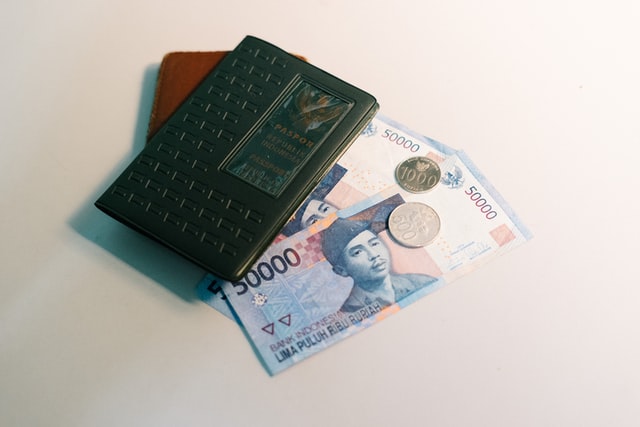
Best 5 Travel Money Cards for Bali in 2024:
- Wise Travel Card for the best exchange rates
- Revolut Travel Card for low fees
- Travelex as the best all rounder
- ING One Low Rate Platinum Credit Card for no international transaction fee
- HSBC Everyday Global for best debit card for ATM cash withdrawals
Wise Travel Card - Best Exchange Rates
- 40+ currencies available
- Best exchange rates globally
- One of the lowest conversion fee on the market
- No international transaction fees
- No annual or monthly fees
- Extremely low costs to send money overseas
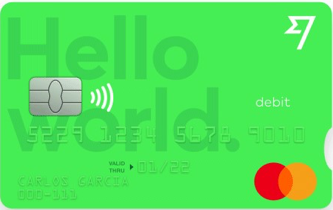
Wise Travel Card
- Cross currency conversion fees are between 0.24–3.69%. AUD to USD, EUR or GBP was 0.42%, which is one of the lowest on the market
- Free cash withdrawals up to $350 every 30 days. However after that, Wise Card charge a fixed fee of $1.50 per transaction + 1.75%
- Daily ATM withdrawal is $2,700
- Issue up to 3 virtual cards for temporary usage
- It takes between 7 to 14 business days to receive your card
- Can be used wherever MasterCard is accepted
For Australians traveling to Bali, the Wise Travel Card presents a range of features that are particularly beneficial. Firstly, the card offers access to over 40 currencies at the intermarket exchange rate, which is renowned for being the most cost-effective globally. This is especially advantageous for Australians in Bali, as it allows them to convert Australian Dollars (AUD) to Indonesian Rupiah (IDR) at highly competitive rates. Given the exchange rate fluctuations, having access to the intermarket rate can lead to significant savings during their stay. However if you use ATMs frequently this is not the card to use due to the fees. Finally Wise Travel Card lets you transfer money to an overseas bank account with extremely low fees and the best exchange rate.
Revolut - Low Fees
- 30+ currencies available
- One of the best exchange rates globally
- No annual or monthly fees for standard membership
- No initial card fee
- Instant access to a range of cryptocurrencies
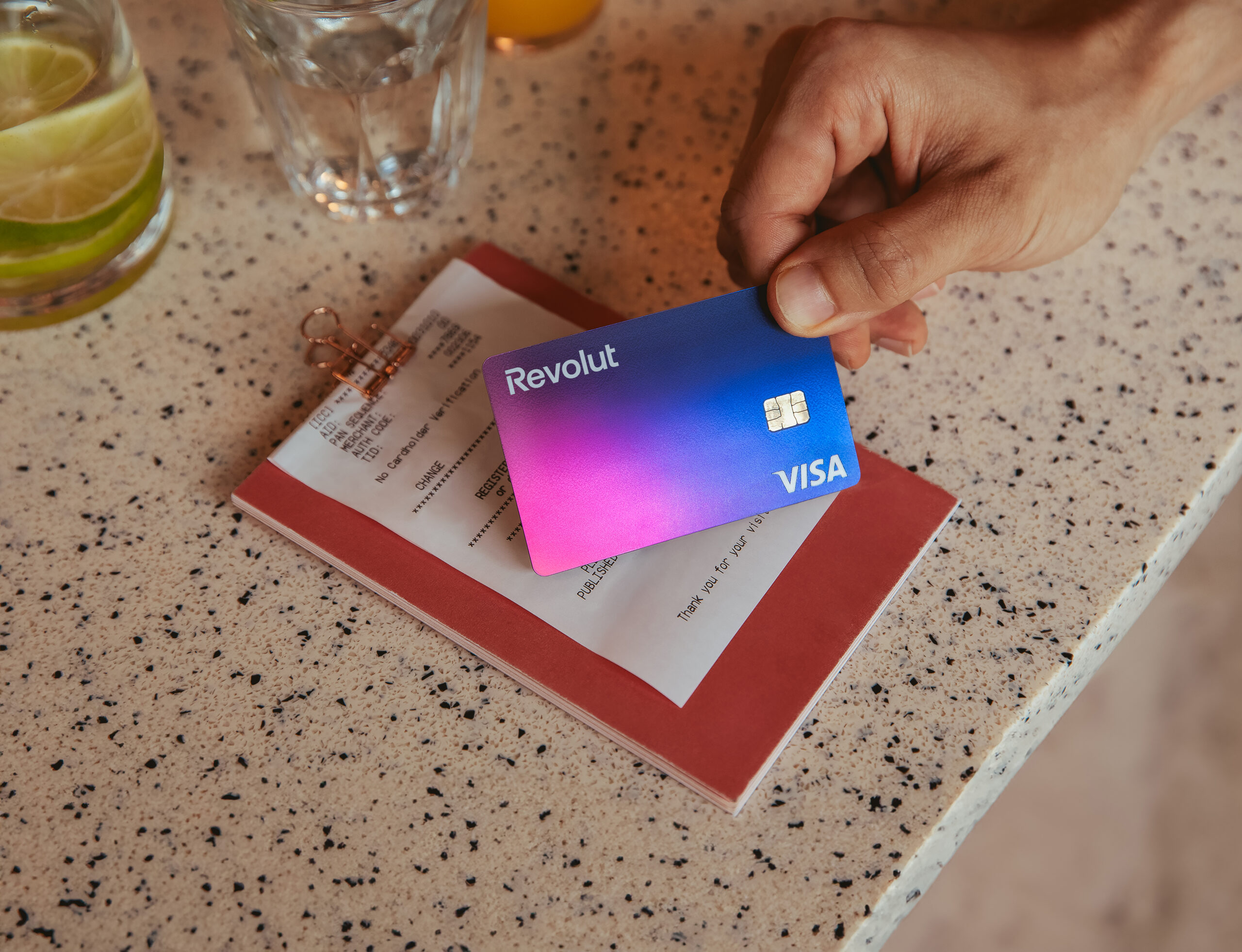
Read our Revolut Card Review
Revolut Travel Card
- No fee ATM withdrawals up to A$350, or 5 ATM withdrawals, whichever comes first, per rolling 30 day period and 2% of withdrawal amount (minimum charge of A$1.50) after that
- Exchanging currency on the weekend can incur a 1% mark-up fee
- Fees on international money transfers were introduced in April 2021.
- Can be used wherever Visa is accepted
The Revolut Travel Card is a decent option for those who travel a lot as it offers over 30 currencies at a great exchange rate, which is the cheapest rate globally. However if you exchange currency on the weekend you can incur a one-percent mark-up fee. In addition they have introduced fees for international transfers. Finally if you use ATMs frequently this is not the card to use due to the fees.
Travelex Money Card - Best All Rounder
Best features.
- Unlimited free ATM withdrawals
- 24/7 Emergency Assistance
- Initial and replacement card are free
- Lock in up to 10 currencies
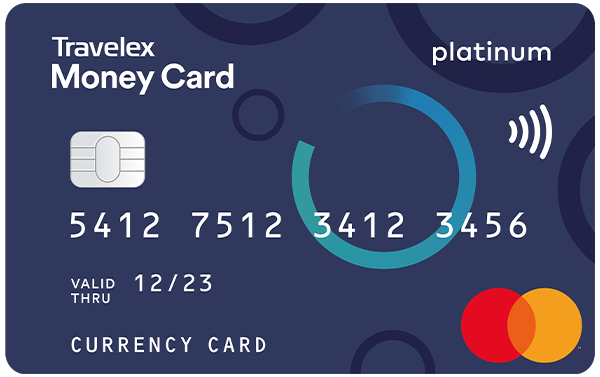
Read our Travelex Travel Card Review
Travelex Money Card
- Minimum load of $100 and maximum load of $100,000
- Can be used wherever Mastercard is accepted
- Fees include a $10 closure fee, $5 for an additional card and $4 inactivity monthly fee.
- While Travelex don't charge ATM fees, some ATM operators may charge their own fees.
- Currencies that can be loaded are AU$, US$, EU€, GB£, NZ$, TH฿, CA$, HK$, JP¥, SG$
- If your card is lost or stolen you can access cash in your account through Moneygram or Western Union agents, with no charge
- Boingo hotspots offer free wifi and you can look at their number of free hotspots per country on this map
The Travelex Card is a good all rounder.
You can use it to take money out of the ATM, for merchant purchases like restaurants and even for online shopping in foreign currency. While the exchange rates aren't as good as the Wise or Revolut Card abroad , the support network if the card is lost or stolen is very good.
ING One Low Rate Credit Card
- No annual fee
- No international transaction fees on purchases
- Up to 45 days interest free on purchases
- Lowest cash advance interest rate of 11.99%
- Use instalment plans to pay off your purchases over time at a lower interest rate
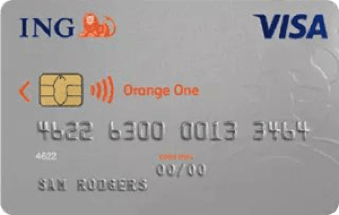
- 11.99% interest rate on purchases
- $6,000 minimum credit card
- Make payments from your mobile with pay with Apple Pay and Google Pay
- International ATM fee and Foreign currency conversion fee are waived when you deposit $1,000 into your Orange Everyday each month, and make 5+ card purchases that are settled. Otherwise they are the higher of 3% or at least $3
- Put repayments on auto payment each month to pay the minimum balance or full amount
The ING One Low Rate credit card for travel is a great option to take to Bali for your next overseas trip as it has one of the lowest interest rates with no international transaction fee on purchases. These two features alone will save you lots of money abroad.
In addition, it has no annual fee, offers 45 days interest free on purchases and it offers the one of the lowest interest rates for cash advances. Finally, it's super versatile. You can make payments from your mobile with Apple Pay and Google Pay.
HSBC Everyday Global Debit Card
- No international ATM fees
- No initial card or closure fees
- No monthly or account fees
- No cross currency conversion fees
- Lock in very competitive exchange rates before travel
- No maximum balance
- Earn 2% cashback
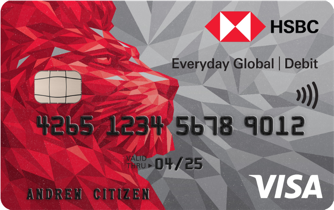
- 10 Currencies can be loaded are AUD, USD, GBP, EUR, HKD, CAD , JPY, NZD, SGD, CNY (currency restrictions apply to CNY)
- Very competitive exchange rates on all currencies when you have currencies already loaded on your card
- ATMs within Australia need to be HSBC and overseas they need to display a VISA or VISA Plus logo, not be be charged fees
- Earn 2% cash back when you tap and pay with payWave, Apple Pay or Google Pay for purchases under $100. With a maximum of $50 cash back per month. In addition you need to deposit $2,000 or more into your Everyday Global Account each calendar month.
- Daily maximum ATM withdrawal is $2,000
- Fraud protection covered by Visa Zero Liability
HSBC is very prominent in Asia and Bali so this is the best debit card for ATM cash withdrawals , as the ATMs only need to display a VISA or VISA Plus logo for free cash withdrawals.
In addition the HSBC Everyday Global Travel Card has no international transaction fees and monthly fees. You can use this card as well in Europe, the UK, the US and New Zealand as well. Finally it offers a 2% cash back incentive when you tap and pay under $100.
Learn more about the best credit, debit and prepaid cards for travel

Credit Card

International Prepaid Cards

The best debit card for Bali charges no international transaction fees and offers intermarket exchange rates on currency conversion, this is the Wise Multi Currency card . It has no set up costs, no ongoing costs or fees for inactivity.
Yes, it is better to have a little bit of Indonesian Rupiah before you arrive. You need cash to pay for your visa when you arrive, cash to pay for transport and tipping in accommodation. The Indonesian exchange rate can be found at the Bank Indonesia page or our home page.
It’s not advisable to carry too much money into Bali, while there is no limit on the amount of foreign currency you bring into Bali, it's better to only bring enough for 2 days. You can work out how much money you need for a week in Bali in our useful guide.
You should take both cash and a card to Bali. A travel money card is better than cash for security reasons and that in most places in Bali you can pay with a card. No one can access your cash unless they have your 4 digit pin. If you lose your travel money card you can quickly report it lost or stolen to stop unauthorised transactions. Cash is better for tipping, on transport and in markets.
Yes Bali does take debit cards especially those linked to Mastercard or Visa, less so with American Express. Most debit cards issued in Australia will work in Bali and it's best to advise your bank that you are travelling to Bali before you leave so they don't cancel your card while you are away. Debit cards work in a similar way to in Australia, tap and pay or punch in your digits and pay. Always accept the local currency when the DCC screen appears to save money.
The currency in Bali is the Indonesian rupiah. They have 6 banknotes called rupiah and 5 coins called sen. The most common notes you’ll probably be dealing with are the blue Rp. 50,000 banknotes or the reddish-pink Rp. 100,000.
More Travel Card Guides
Learn more about the best travel money cards for your holiday destination.
ASIC regulated
Like all reputable money exchanges, we are registered with AUSTRAC and regulated by the Australian Securities and Investment Commission (ASIC).

S Money complies with the relevant laws pertaining to privacy, anti-money laundering and counter-terrorism finance. This means you are required to provide I.D. when you place an order. It also means the order must be paid for by the same person ordering the currency and you must show your identification again when receiving your order.
- Argentina
- Australia
- Deutschland
- Magyarország
- New Zealand
- Österreich
- Singapore
- United Kingdom
- United States
- 繁體中文 (香港)
5 Best Travel Cards for Bali
Getting an international travel card before you travel to Bali can make it cheaper and more convenient when you spend in Indonesian Rupiah. You'll be able to easily top up your card in USD before you leave the US, to convert seamlessly to IDR for secure and flexible spending and withdrawals.
This guide walks through our picks of the best travel cards available for anyone from the US heading to Bali, like Wise or Revolut. We'll walk through a head to head comparison, and a detailed look at their features, benefits and drawbacks.

5 best travel money cards for Bali:
Let's kick off our roundup of the best travel cards for Bali with a head to head comparison on important features. Here's an overview of the providers we've picked to look at, for customers looking for ways to spend conveniently overseas when travelling from the US:
Each of the international travel cards we’ve picked out have their own features and fees, which may mean they suit different customer needs. Keep reading to learn more about the features, advantages and disadvantages of each - plus a look at how to order the travel card of your choice before you head off to Bali.
Wise travel card
Open a Wise account online or in the Wise app, to order a Wise travel card you can use for convenient spending and withdrawals in Bali. Wise accounts can hold 40+ currencies, so you can top up in USD easily from your bank or using your card. Whenever you travel, to Bali or beyond, you’ll have the option to convert to the currency you need in advance if it’s supported for holding a balance, or simply let the card do the conversion at the point of payment.
In either case you’ll get the mid-market exchange rate with low, transparent fees whenever you spend in IDR, plus some free ATM withdrawals every month - perfect if you’re looking for easy ways to arrange your travel cash.
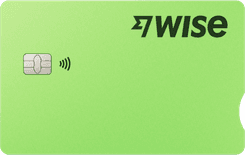
Wise features
Wise travel card pros and cons.
- Hold and exchange 40+ currencies with the mid-market rate
- Spend seamlessly in IDR when you travel
- Some free ATM withdrawals every month, for those times only cash will do
- Ways to receive payments to your Wise account conveniently
- Manage your account and card from your phone
- 9 USD delivery fee for your first card
- ATM fees apply once you've exhausted your monthly free withdrawals
- Physical cards may take 14 - 21 days to arrive
How to apply for a Wise card
Here’s how to apply for a Wise account and order a Wise travel card in the US:
Open the Wise app or desktop site
Select Register and confirm you want to open a personal account
Register with your email, Facebook, Apple or Google ID
Upload your ID document to complete the verification step
Tap the Cards tab to order your card
Pay the one time 9 USD fee, confirm your mailing address, and your card will be on the way, and should arrive in 14 - 21 days
Revolut travel card
Choose a Revolut account, from the Standard plan which has no monthly fee, to higher tier options which have monthly charges but unlock extra features and benefits. All accounts come with a smart Revolut card you can use in Bali, with some no fee ATM withdrawals and currency conversion monthly, depending on the plan you pick. Use your Revolut account to hold and exchange 25+ currencies, and get extras like account options for under 18s, budgeting tools and more.
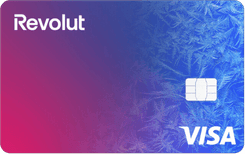
Revolut features
Revolut travel card pros and cons.
- Pick the Revolut account plan that suits your spending needs
- Hold and exchange 25+ currencies, and spend in 150 countries
- Accounts come with different card types, depending on which you select
- All accounts have some no fee currency exchange and some no fee ATM withdrawals monthly
- Some account tiers have travel perks like complimentary or discounted lounge access
- You need to upgrade to an account with a monthly fee to get all account features
- Delivery fees may apply for your travel card
- Fair usage limits apply once you exhaust your currency conversion and ATM no fee allowances
- Out of hours currency conversion has additional fees
How to apply for a Revolut card
Set up your Revolut account before you leave the US and order your travel card. Here’s how:
Download and open the Revolut app
Register by adding your personal and contact information
Follow the prompts to confirm your address and order your card
Pay any required delivery fee - costs depend on your account type
Chime travel card
Use your Chime account and card to spend in Bali with no foreign transaction fee. You’ll just need to load a balance in USD and then the money is converted to IDR instantly with the Visa rate whenever you spend or make a withdrawal. There’s a fee to make an ATM withdrawal out of network, which sits at 2.5 USD, but there are very few other costs to worry about. Plus you can get lots of extra services from Chime if you need them, such as ways to save.
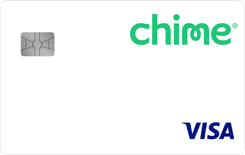
Chime features
Chime travel card pros and cons.
- No Chime foreign transaction fees
- No ongoing charges for your account
- Lots of extra products and services if you need them
- Easy ways to manage your money online and in app
- Virtual cards available
- You'll need to inform Chime you're traveling to use your card abroad
- Low ATM limits
- Cards take 7 - 10 days to arrive by mail
How to apply for a Chime card
Here’s how to apply for a Chime account and order a travel card in the US:
Visit the Chime website or download the app
Click Get started and add your personal details
Add a balance
Your card will be delivered in the mail and you can use your virtual card instantly
Monzo travel card
Monzo cards can be ordered easily in the US and used for spending in Bali and globally. Monzo accounts are designed for holding USD only - but you can spend in IDR and pretty much any other currency easily, with no foreign transaction fee. Your funds are just converted using the network exchange rate whenever you pay or make a withdrawal.
Monzo doesn’t usually apply ATM fees, but it’s worth knowing that the operator of the specific ATM you pick may have their own costs you’ll need to check out.
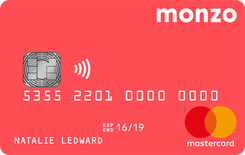
Monzo features
Monzo travel card pros and cons.
- Good selection of services available
- No foreign transaction fee to pay
- No Monzo ATM fee to pay
- Manage your card from your phone conveniently
- Deposits are FDIC protected
- You can't hold a foreign currency balance
- ATM operators might apply their own fees
How to apply for a Monzo card
Here’s how to apply for a Monzo account and order a travel card in the US:
Visit the Monzo website or download the app
Click Get Sign up and add your personal details
Check and confirm your mailing address and your card will be delivered in the mail
Netspend travel card
Netspend has a selection of prepaid debit cards you can use for spending securely in Bali. While these cards don’t usually let you hold a balance in IDR, they’re popular with travelers as they’re not linked to your regular checking account. That increases security overseas - plus, Netspend offers virtual cards you can use to hide your physical card details from retailers if you want to.
The options with Netspend vary a lot depending on the card you pick. Usually you can top up digitally or in cash in USD and then spend overseas with a fixed foreign transaction fee applying every time you spend in a foreign currency. You’ll be able to view the terms and conditions of your specific card - including the fees - online, by entering the code you’ll find when your card is sent to you.
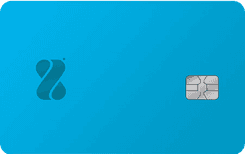
Netspend features
Netspend travel card pros and cons.
- Large selection of different card options depending on your needs
- Some cards have no overseas ATM fees
- Prepaid card which is secure to use overseas
- Manage your account in app
- Change from one card plan to another if you need to
- You may pay a monthly fee for your card
- Some cards have foreign transaction fees for all overseas use, which can be around 4%
- Selection of fees apply depending on the card you pick
How to apply for a Netspend card
Here’s how to apply for a Netspend account and order a travel card in the US:
Visit the Netspend website
Click Apply now
Complete the details, following the onscreen prompts
Get verified
Your card will arrive by mail - add a balance and activate it to get started
What is a travel money card?
A travel money card is a card you can use for secure and convenient payments and withdrawals overseas.
You can use a travel money card to tap and pay in stores and restaurants, with a wallet like Apple Pay, or to make ATM withdrawals so you'll always have a bit of cash in your pocket when you travel.
Although there are lots of different travel money cards on the market, all of which are unique, one similarity you'll spot is that the features and fees have always been optimised for international use. That might mean you get a better exchange rate compared to using your normal card overseas, or that you run into fewer fees for common international transactions like ATM withdrawals.
Travel money cards also offer distinct benefits when it comes to security. Your travel money card isn't linked to your United States Dollar everyday account, so even if you were unlucky and had your card stolen, your primary bank account remains secure.
Travel money vs prepaid card vs travel credit card
It's helpful to know that you'll be able to pick from several different types of travel cards, depending on your priorities and preferences. Travel cards commonly include:
- Travel debit cards
- Travel prepaid cards
- Travel credit cards
They all have distinct benefits when you head off to Bali or elsewhere in the world, but they do work a bit differently.
Travel debit and prepaid cards are usually linked to an online account, and may come from specialist digital providers - like the Wise card. These cards are usually flexible and cheap to use. You'll be able to manage your account and card through an app or on the web.
Travel credit cards are different and may suit different customer needs. As with any other credit card, you may need to pay an annual fee or interest and penalties depending on how you manage your account - but you could also earn extra rewards when spending in a foreign currency, or travel benefits like free insurance for example. Generally using a travel credit card can be more expensive compared to a debit or prepaid card - but it does let you spread out the costs of your travel across several months if you'd like to and don't mind paying interest to do so.
What is a prepaid travel money card best for?
Let's take a look at the advantages of using a prepaid travel money card for travellers going to Bali. While each travel card is a little different, you'll usually find some or all of the following benefits:
- Hold and exchange foreign currencies - allowing you to lock in exchange rates and set a travel budget before you leave
- Convenient for spending in person and through mobile wallets like Apple Pay, as well as for cash withdrawals
- You may find you get a better exchange rate compared to your bank - and you'll usually be able to avoid any foreign transaction fee, too
- Travel cards are secure as they're not linked to your everyday USD account - and because you can make ATM withdrawals when you need to, you can also avoid carrying too much cash at once
Overall, travel cards offer flexible and low cost ways to avoid bank foreign transaction and international ATM fees, while accessing decent exchange rates.
How to choose the best travel card for Bali
We've picked out 5 great travel cards available in the US - but there are also more options available, which can make choosing a daunting task. Some things to consider when picking a travel card for Bali include:
- What exchange rates does the card use? Choosing one with the mid-market rate or as close as possible to it is usually a smart plan
- What fees are unavoidable? For example, ATM charges or top up fees for your preferred top up methods
- Does the card support a good range of currencies? Getting a card which allows you to hold and spend in IDR can give you the most flexibility, but it's also a good idea to pick a card with lots of currency options, so you can use it again in future, too
- Are there any other charges? Check in particular for foreign transaction fees, local ATM withdrawal fees, inactivity fees and account close fees
Ultimately the right card for you will depend on your specific needs and preferences.
What makes a good travel card for Bali
The best travel debit card for Bali really depends on your personal preferences and how you like to manage your money.
Overall, it pays to look for a card which lets you minimise fees and access favourable exchange rates - ideally the mid-market rate. While currency exchange rates do change all the time, the mid-market rate is a good benchmark to use as it’s the one available to banks when trading on wholesale markets. Getting this rate, with transparent conversion fees, makes it easier to compare costs and see exactly what you’re paying when you spend in IDR.
Other features and benefits to look out for include low ATM withdrawal fees, complimentary travel insurance, airport lounge access or emergency cash if your card is stolen. It’s also important to look into the security features of any travel card you might pick for Bali. Look for a card which uses 2 factor authentication when accessing the account app, which allows you to set instant transaction notifications, and which has easy ways to freeze, unfreeze and cancel your card with your phone.
When you’re planning your trip to Bali, bear in mind that cash is still a primary payment method, and many merchants and public service providers won’t accept a card. You’ll want a travel card which allows low cost cash withdrawals so you’ve always got some IDR in your pocket - and you can also keep hold of your card as a convenient back up in case of emergency too. Choose a card with no ongoing fees and no inactivity costs, so you can use it for your next trip abroad to get the most possible use out of it.
Ways to pay in Bali
Cash and card payments - including contactless, mobile wallet, debit, credit and prepaid card payments - are the most popular ways to pay globally.
In Bali cash is a very popular payment method. While you may find cards are accepted in major hotels and chain stores or very busy tourist areas, many merchants prefer cash. Make sure you’ve always got some IDR in cash in your wallet by making ATM withdrawals with your travel card whenever you need to.
Which countries use IDR?
You’ll find that IDR can only be used in Bali. If you don’t travel to Bali frequently it’s worth thinking carefully about how much to exchange so you’re not left with extra foreign currency after your trip. Or pick a travel card from a provider like Wise or Revolut which lets you leave your money in USD and convert at the point of payment with no penalty.
What should you be aware of when travelling to Bali
You’re sure to have a great time in Bali - but whenever you’re travelling abroad it's worth putting in a little advance thought to make sure everything is organised and your trip goes smoothly. Here are a few things to think about:
1. Double check the latest entry requirements and visas - rules can change abruptly, so even if you’re been to Bali before it’s worth looking up the most recent entry requirements so you don’t have any hassle on the border
2. Cash is a widespread payment method - so you’ll need some IDR in your pocket when you travel to Bali. You can sort out your travel money by visiting an exchange office here in the US, or you can wait until you arrive and make an ATM withdrawal in IDR at the airport when you land. Bear in mind that currency exchange at exchange offices at the airport, either in the US or in Bali can be expensive - so if you’re carrying USD in cash and need to exchange it, head into a town centre to do so.
3. Get clued up on any health or safety concerns - get travel insurance before you leave the US so you have peace of mind. It’s also worth reading up on any common scams or issues experienced by tourists. These tend to change over time, but may include things like rip off taxis or tour agents which don’t offer fair prices or adequate services.
Conclusion - Best travel cards for Bali
Ultimately the best travel card for your trip to Bali will depend on how you like to manage your money. Use this guide to get some insights into the most popular options out there, and to decide which may suit your specific needs.
FAQ - best travel cards for Bali
When you use a travel money card you may find there’s an ATM withdrawal fee from your card issuer, and there may also be a cost applied by the ATM operator. Some of our travel cards - like the Wise and Revolut card options - have some no fee ATM withdrawals every month, which can help keep down costs.
Travel money cards may be debit, prepaid or credit cards. Which is best for you will depend on your personal preferences. Debit and prepaid cards are usually pretty cheap and secure to spend with, while credit cards may have higher fees but often come with extra perks like free travel insurance and extra reward points.
There’s no single best prepaid card for international use. Look out for one which supports a large range of currencies, with good exchange rates and low fees. This guide can help you compare some popular options, including Wise, Revolut and Monzo.
Yes, you can use your local debit card when you’re overseas. However, it’s common to find extra fees apply when spending in foreign currencies with a regular debit card. These can include foreign transaction fees and international ATM charges.
Usually having a selection of ways to pay - including a travel card, your credit or debit card, and some cash - is the best bet. That means that no matter what happens, you have an alternative payment method you can use conveniently.
Yes. Most travel debit cards have options to make ATM withdrawals. Check the fees that apply as card charges do vary a lot. Some cards have local and international fees on all withdrawals, while others like Wise and Revolut, let you make some no fee withdrawals monthly before a fee kicks in.
Both Visa and Mastercard are globally accepted. Look out for the logo on ATMs and payment terminals in Bali.
The cards you see on this page are ordered as follows:
For card providers that publish their exchange rates on their website, we used their USD / IDR rate to calculate how much Indonesian Rupiah you would receive when exchanging / spending $4,000 USD. The card provider offering the most IDR is displayed at the top, the next highest below that, and so on.
The rates were collected at 15:54:21 GMT on 19 February 2024.
Below this we display card providers for which we could not verify their exchange rates. These are displayed in alphabetical order.
Send international money transfer
More travel card guides.
- Argentina
- Australia
- Deutschland
- Magyarország
- New Zealand
- Österreich
- Singapore
- United Kingdom
- United States
- 繁體中文 (香港)
The 6 Best Travel Money Cards for Bali 2024

Bali has it all, from pristine beaches perfect for surfing, a wild party scene, spiritual sites and unique culture - plus places to get away from it all, practice yoga, wander rice terraces and eat fantastic food.
Getting to Bali from the UK isn’t the cheapest or easiest journey. Make sure you can get as much from your trip as possible with a travel debit, prepaid or credit card which can let you cut your overall costs, beat foreign transaction fees, or earn cash back and rewards. This guide walks through your travel money card options and touches on 6 of our favourites to kickstart your research.
Wise - our pick for travel debit card when travelling to Bali
Wise accounts can hold and exchange 40+ currencies, and you can get a linked Wise card for a one time delivery fee. Top up your account in GBP and switch to IDR before you travel. All currency conversion uses the mid-market exchange rate, with low fees from 0.41%. Here are some of the pros and cons of the Wise travel money debit card, to help you decide if it’s right for you.
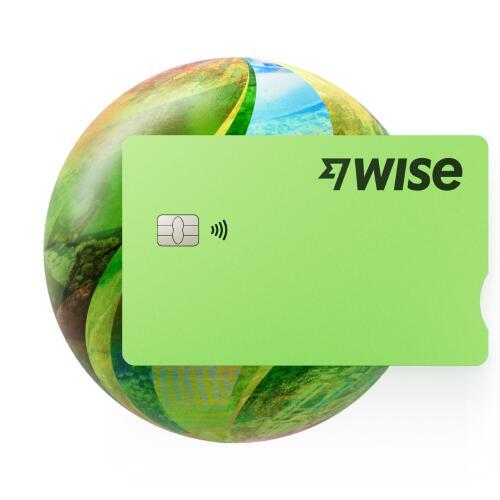
Hold and exchange 40+ currencies , including GBP-IDR
No fee to spend any currency you hold, low conversion fees from 0.41%
Mid market exchange rate on all currency conversion
Some fee free ATM withdrawals every month
No ongoing fees and no interest to pay
7 GBP delivery fee
No option to earn points or rewards
Click here to read a full Wise review
What is a travel money card?
A travel money card can be used for contactless payments in stores, online shopping and cash withdrawals. Where it’s different to any other card you might hold is that your travel card will have been optimised for international spending, to make spending in a foreign currency cheaper and easier.
The UK is well served for travel money cards, and while individual cards all have their own features and benefits, you may find you can hold a balance in multiple currencies, avoid foreign transaction fees, or earn cash back or rewards overseas.
What are different types of travel cards?
Generally you can split the different types of travel cards available in the UK into the following categories. We’ll walk through the features and benefits of each in a moment:
Travel debit cards
Travel prepaid cards
Travel credit cards
Quick summary: Best travel cards for Bali
Bali is part of Indonesia - so while you’re there you’ll need to spend Indonesian rupiah (IDR). This review of travel cards offers 6 convenient cards to let you do just that. Here’s what we’ll be looking at:
Wise travel debit card : Hold 40+ currencies, including IDR, with no ongoing fees, and spend with the mid-market exchange rate with no foreign transaction fee and low conversion costs from 0.43%
Revolut travel debit card : Hold a balance in GBP or around 25+ other currencies, then spend in IDR with mid-market exchange rates to the plan limit. Pick from 4 different plan types, including some with no monthly fee, and some which come with ongoing costs but which unlock more benefits and no fee transactions
Post Office travel money card : Hold GBP and 21 other currencies, with a secure card you can pick up in person at a Post Office. A 3% fee applies when spending IDR
Monese travel money card : Hold a balance in GBP, then spend in IDR with no fees, up to your plan’s limit. Different plans on offer, including Simple which has no ongoing fees to pay
Barclays Rewards Visa travel credit card: Spend with the Visa exchange rate, and earn 0.25% cash back, with no foreign transaction fee and no cash advance fee. Interest and penalties can apply
Halifax Clarity Mastercard travel credit card: No foreign transaction fee, no annual fee, and no cash advance fee if you withdraw money at an ATM. Variable interest and penalties can apply
Travel money cards for Bali compared
Here’s a brief comparison of all the cards we’ve picked out - in a moment we’ll also look at each card in more detail.
Before you order a new travel money card, you’ll need to weigh up which type of card, and which specific provider might suit your needs. Travel debit cards from a service like Wise can let you hold an IDR balance which is handy if you want to see your travel budget for Bali in advance.
Monese cards come with some currency exchange with no fees, depending on the plan you pick. And while credit cards can be pretty costly they can also offer ways to earn rewards as you spend. This guide helps you compare different card types and providers so you can pick the right one for your needs.
Travel Debit Cards for Bali
Travel debit cards from a specialist provider come with a linked digital account you’ll manage from your phone. Depending on the specific travel debit card you select you may be able to add money in GBP and just convert to IDR at the point of payment automatically, or to hold a balance in IDR in your account so you can see exactly what you have to spend in advance. That can be handy if you spot a good exchange rate and want to lock it in, or if you’re working to a strict budget and want to see exactly how much you have to play with before you start spending.
Below we’ll walk through two popular travel debit card picks which each have their own specific features and fees, so you can compare.
Travel debit card option 1: Wise
There’s no fee to open a personal Wise account , but you’ll pay a one time card order fee of 7 GBP. After that there’s no minimum balance and no monthly charge. Wise accounts can support 40+ currencies for holding and exchange, with low fees from 0.43% when you convert currencies, and transparent ATM fees when you exhaust the monthly free transactions available with your account.
No fee to open a personal Wise account, no minimum balance requirement
7 GBP one time fee to get your Wise card
2 withdrawals, to 200 GBP value per month for free, then 0.5 GBP + 1.75%
Hold IDR and 40+ other currencies, convert between them with the mid-market rate
Get local account details to receive GBP, NZD, EUR, USD and a selection of other major currencies conveniently

Travel debit card option 2: Revolut
Revolut has a selection of different account tiers for personal customers in the UK, including Standard plans with no monthly fee, to the top end Ultra plan which has a 45 GBP/month fee and comes with loads of perks including a fancy platinum plated card.
You can hold around 25 currencies, although IDR isn't supported for holding and exchange. Instead you’ll add money in GBP and your card will convert automatically with the mid-market rate to your plan’s allowance, whenever you spend or make a cash withdrawal. The higher account tiers also come with extras like various different forms of complimentary insurance, discounts, cash back opportunities and travel benefits.
No monthly fee for a Standard Revolut account, or upgrade to one of 4 different account plans which have monthly fees running from 3.99 GBP/month to 45 GBP/month
All accounts have some no fee weekday currency conversion with fair usage fees after that which are 1% for Standard plan holders
Standard plan holders can withdraw 200 GBP overseas per month for free
Hold around 25 currencies

Pros and cons of using debit travel cards in Bali
How much does a travel debit card cost.
The costs of a travel debit card depend on the provider you pick and the way you transact.
For the cards we’ve looked at here, the Wise travel debit card has a one time fee to get your physical card, but there are no monthly charges or minimum balance requirements after that. You can add a balance in GBP and then switch over to IDR in advance with a small currency conversion cost which can be as low as 0.43%. Or you can leave your money in GBP and the card can convert for you with the same great rates and low fees.
Revolut works a little differently, with 4 different account plans available including a Standard account with no ongoing charges but relatively limited features, and 3 personal account plans which have a monthly fee but which offer more no-fee transactions. You can’t hold a balance in IDR so you’ll need to rely on the card to convert for you. There are no fees until you hit your plan conversion limit, but there are then fair usage fees of 0.5% - 1% for some account tiers after that.
How to choose the best travel debit card in Bali?
The best travel debit card for Bali will depend to an extent on your personal preference. If you’d prefer to see your travel budget in IDR ahead of time, you might consider Wise as you can add a balance and then convert to IDR for spending later.
As an alternative, you might choose Revolut which lets you add money in GBP and spend in IDR with no conversion fees up to your plan limit. To unlock more no-fee conversion you’ll need to pay monthly fees so it’s worth comparing your options based on how frequently you might use your card.
Is there a spending limit with a travel debit card in Bali?
You’ll probably find there’s a spending limit for your travel debit card. However, this limit can vary quite significantly, depending on the provider you pick. You can also usually adjust your spending limits for security in the provider’s app which means you can set the limit you’re comfortable with.
For the providers mentioned above, Revolut UK travel debit card holders have some spending caps based on merchant and transaction type. This applies to things like sending money to others, buying travellers cheques or money orders, and betting. Wise caps monthly card spending at 30,000 GBP but you can also move your limit lower if you’d like to, for security reasons.
ATM withdrawals
ATM withdrawals with a travel debit card are also likely to be subject to limits. Revolut applies a 3,000 GBP limit based on any given 24 hour period. Wise ATM withdrawal limits are 4,000 GBP per month. Both providers allow you to make some no fee ATM withdrawals monthly, but the exact amount you can withdraw will depend on your account type.
Prepaid Travel Cards for Bali
[Prepaid travel cards] ( https://exiap.co.uk/guides/best-prepaid-travel-cards ) are another common option for your trip to Bali. As with travel debit cards, you’ll have an extra layer of security because your card isn’t linked to your main UK bank account. But because prepaid cards don’t commonly support IDR for holding a balance, there could be a few extra transaction fees which push up the overall cost, depending on the specific card you select. Here are a couple of strong contenders for prepaid travel cards in the UK:
Prepaid travel card option 1: Post Office Travel Money Card
You can order a Post Office Travel Money Card online or pick one up in person at a branch as long as you have a valid ID on you. Cards allow you to top up and hold 22 currencies, although bear in mind a fee applies when you spend in IDR as it’s not a currency supported by the card. That means that when you spend in Bali, payments will be deducted from your GBP balance instead, with a 3% fee.
3% cross border fee when you spend in IDR
22 currencies are supported for holding and exchange
No fee to spend a currency you hold on your card
ATM withdrawal fee will be deducted from your GBP balance, and will be the equivalent of 1.5 GBP
Manage your account and card from the Post Office travel money app
Prepaid travel card option 2: Monese Travel Money Card
Monese offers several different account plans which come with linked cards you can use while overseas. Depending on the plan you pick you’ll get some free international spending and some free ATM withdrawals. Simple account plans have no monthly fees, but are more limited in terms of no-fee transactions compared to the other account tiers. While Monese does offer foreign currency account plans, these are not available in IDR.
Pick the account plan that suits your needs, including a Simple plan with no monthly costs and some plans which do have a fee to pay every month
Accounts offered in GBP, EUR and RON
Simple account plan holders can spend up to 2,000 GBP a month in foreign currencies with no fees - other account plans have unlimited overseas spending with no extra fees
All accounts have some fee free ATM withdrawals every month, with variable limits based on account plan
Virtual cards available
Pros and cons of using prepaid travel cards in Bali
How much does a prepaid card cost.
The costs of a prepaid travel card can vary quite a lot. The Post Office travel card has no initial fee, but as IDR isn’t supported for holding and exchange, you’ll pay a 3% cross border fee when you’re in Bali.
Monese has account plans which offer some currency conversion with no fees every month, so this can still be an attractive option based on cost, but you’ll need to weigh up any monthly fees that apply for your specific card plan.
How to choose the best travel prepaid card for Bali?
The best prepaid travel card for Bali really depends on your personal preferences. The Post Office card has the advantage that you can pop into a Post Office branch and get one in person if you’re in a hurry - but the downside that using it in Indonesia comes with a hefty 3% cross border fee. The Monese cards on offer include a Simple card which has no monthly fee but which only lets you spend up to 2,000 GBP internationally a month before extra costs apply. If you’re spending more, upgrading to a Monese account with a monthly fee may actually be better value - plus you can downgrade again any time you like.
Prepaid travel card spending limit
The Post Office travel card lets you top up to 5,000 GBP at a time, with the maximum balance at any given time set at 10,000 GBP, or 30,000 GBP annually. Monese accounts may have different limits based on the tier you pick - usually set at a maximum holding balance at any time of 40,000 GBP. You may be limited to spending up to 7,000 GBP a day, depending on your account type.
With the Post Office card, you can make up to 17,000 THB maximum daily withdrawals and each withdrawal costs 80 THB. Monese accounts may have a maximum ATM withdrawal of 300 GBP a day, depending on the specific account you pick, so it’s worth reading the fee schedule carefully to understand the details.
Travel credit cards for Bali
Travel credit cards don’t let you hold a balance in IDR, but instead when you spend your payment is converted from Indonesian rupiah to GBP using the network rate to be added to your bill. With travel credit cards you’ll often find that the foreign transaction fees which many credit cards use for foreign currency spending are waived, which can mean it’s around 3% cheaper to use a travel credit card abroad compared to using a normal credit card.
However, as with all credit cards, there are some fees you’re likely to run into with a travel credit card which can mean it’s a more expensive option than using a debit card.
Travel credit card option 1: Barclaycard Rewards Visa
The Barclaycard Rewards Visa credit card is a good, straightforward option for UK customers looking for a credit card which does not have foreign transaction fees, and which doesn’t have an annual fee. As with any credit card, some costs can apply including interest fees if you don’t clear your bill monthly, but you’ll be able to earn 0.25% cash back on all your card spending at home and abroad.
No annual fee, with 0.25% cash back on card spending
Currency exchange uses the network rate and no foreign transaction fee
No ATM withdrawal fee - but interest can still apply
28.9% representative APR, with penalty fees for late payments
Secure spending with extra protection on some purchases
Travel credit card option 2: Halifax Clarity Mastercard
The Halifax Clarity Mastercard has a variable interest rate which is based on your creditworthiness, but doesn’t use different rates for different transaction types as some cards do. There’s no foreign transaction fee when you spend or withdraw in foreign currencies, but bear in mind that an ATM operator might charge a fee, and interest accrues instantly for cash advance transactions.
No foreign transaction fee when spending or making a cash withdrawal overseas
Interest applies instantly when making cash withdrawals
Same interest rate applies on all purchase categories
Variable APR based on your credit score - you’ll need to check your eligibility online to see the APR you’d be offered
Spending is covered by the Consumer Credit act which means extra protections for purchases from 100 GBP to 30,000 GBP in value
Pros and cons of using credit cards for Bali
How much does a travel credit card cost.
Travel credit cards may have no annual charge and no foreign transaction fee to pay when spending overseas. However, variable interest, which is set based on your credit score, will still apply if you don’t pay your bill in full every month. It’s also important to note that although the cards we’ve featured above have no cash advance fee for making ATM withdrawals, interest usually accrues instantly. Overall that can mean credit card spending costs more in the end than using a debit or prepaid travel card.
How to choose the best travel credit card for Bali?
If you’re planning on spreading the costs of your spending over a few months it’s worth looking for the card which has the lowest available interest, particularly if it has no annual fee to worry about. If you’ll usually repay your bill in full monthly it may be more important to you to find a card which offers cash back or rewards. Weigh up a few different options while you decide, to make sure you get the right match for your specific needs.
Travel credit card spending limit
Your travel credit card spending limit will be set by the card provider, and will depend on your credit score. You’ll be shown details of your spending limit when you’re approved for a travel credit card.
The cards we’ve looked at earlier don’t charge a cash advance fee, but this is a common cost when using a credit card at an ATM, so worth looking out for when you select any credit card. It’s also worth noting that it’s very common for ATM withdrawals to start accruing interest instantly, so you’ll end up needing to repay some charges whenever you use your credit card in an ATM.
How much money do I need in Bali?
Bali doesn’t have to be an expensive destination. While you can opt for high end luxury, there are nice hotels at a reasonable price and food shouldn’t break the bank either. Here’s a quick look at some common costs in Bali:
Conclusion: Which travel money card is best for Bali?
Using a travel money card when you’re overseas is secure and convenient, and can help you cut costs and manage foreign transaction fees.
The right travel card for Bali will depend on what you prefer. Check out a few while you’re shopping around - the Wise travel debit card might suit if you want to convert to IDR either in advance or at the point of payment, with low fees and the mid-market exchange rate. A Monese travel prepaid card might be a good pick if you’ll only exchange money to the free currency conversion limit set in your specific plan. Or, a travel credit card like the Barclays Rewards Visa could work if you want a card for earning cash back and for using as a payment guarantee.
FAQ - Best travel cards for Bali
Can you withdraw cash with a credit card in bali.
Yes. You can use your credit card to make an ATM withdrawal at any ATM in Bali where your card network is accepted. However, bear in mind you’ll pay interest instantly when you use a credit card in an ATM. Choosing to withdraw with a low cost travel debit card from Wise or Revolut may bring down your overall fees.
Can I use a debit card in Bali?
Cards aren’t universally accepted in Bali. You should have no problems paying in larger and chain stores, hotels and restaurants in the cities, but bear in mind that you may not be able to pay with card in smaller merchants or at markets, so having both a prepaid or travel debit card and some Indonesian rupiah in cash is a smart plan.
Are prepaid cards safe?
Yes. Prepaid cards are not linked to your normal UK bank account which means that they’re safe to use. Even if you were unlucky and someone stole your card while you’re in Bali, they would not be able to access your main account - and you could freeze your prepaid card in the app easily if you needed to.
What is the best way to pay in Bali?
In some places, cash will be the only option for making payments in Bali. In general, making sure you always have some cash in Indonesian rupiah, and a travel card for spending or getting cash from an ATM, is a good choice so you have a back up plan if you ever need it.
- SIMCards / eSIMS
Staying in Bali for more than just a holiday
- Animal Welfare
- Green Traveling

Hotels, Resorts, Villas & Holiday Rentals

Bali's no. 1 Travel Guide
Don't Forget:
Things to Do in Bali
With our BaliCard, Bali's Digital Discount Card & Tourist Pass, you save 10% and more
What's on Bali

Events at W Bali Seminyak

Events at Desa Potato Head

Events at AYANA Bali

Events at MRS SIPPY
How to pay in Bali
Cash, credit cards, atms and money changers.

The Ultimate Guide to Payment Methods in Bali: Cash, Cards, and More
Bali is very accommodating when it comes to paying for your holiday expenses and cashless payments are on the rise. The local population uses several payment apps and QR code payment systems which are working smoothly and very efficiently. As a tourist, usually one does not have access to those payment gateways, nevertheless using credit cards, pulling money from ATM machines and changing money is easy.
The Currency in Bali and Indonesia
The indonesian rupiah – idr.
Indonesia uses the rupiah (IDR) as its official currency. Since some of its bills contain a lot of zeroes, it might seem like you have enough money to buy a private island when, in reality, you probably only have enough to buy you a meal.
The official currency symbol is IDR, but very often you can see Rp. being used.
Contrary to what might expect the Indonesian Rupiah has been pretty stable over the years.
You can check the current rates here:
Click for Exchange Rate and Currency Converter
Very Roughly: IDR 100,000 equals
Indian Rupee 550
There are coins with the value of Rp. 50, Rp. 100, Rp. 200, Rp. 500 and Rp. 1,000
Because of their low value, people kind of try to avoid using them.
Notes are available at Rp. 1,000, Rp. 2,000, Rp. 5,000, Rp. 10,000, Rp. 20,000, Rp. 50,000, and Rp. 100,000,-
You are not allowed to bring cash into the country that exceeds the value of IDR 100,000,000, otherwise a declaration must be filed, and you will have to pay a tax on the total amount.
Yes. Credit Cards in Bali (Visa & Master) are widely accepted
Visa and MasterCard are the most accepted credit cards in Bali. Only a few hotels and restaurants do take Amex, Diners Club even less.
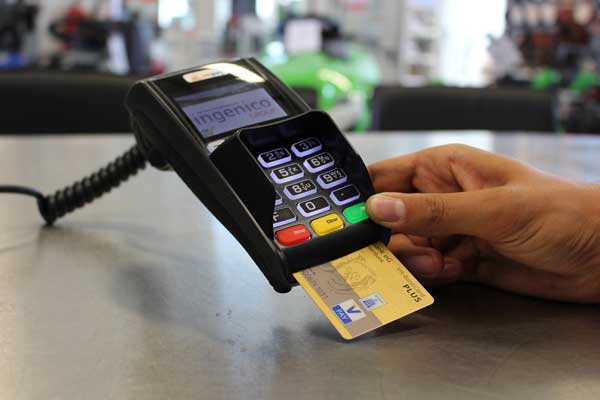
Credit card acceptance is widespread in today’s retail establishments, especially in Bali’s high-traffic areas where tourists frequent. Hotels, restaurants, shops (not the “hole in the wall”-shops) will accept your card,
However, you shouldn’t rely on your plastic as much as you would in more remote places the only acceptable way of payment.
Therefore, most places accept credit cards, but some of the smaller ones, as well as hotels, guesthouses, and home-stays, tack on a 3% surcharge . This is because businesses incur a fee of 2% or more when using credit cards, and small and private vendors will pass along that cost to the consumer. Even though it’s not “correct” from the perspective of the credit card companies terms and conditions, you can’t argue your case when this happens.
the many small shops selling souvenirs and gadgets will most likely accept credit cards. These are also the places where you rarely find price tags and bargaining is common to get a fair price for your souvenirs.
Smaller restaurants and local Warungs (local restaurants) might also not have a credit card machine.
We get asked also quite often if it is better to use cash or card for small purchases in Bali? Definitely a Yes!
Handling Cash & Paying in Rupiah
As mentioned above Cash is still a very important form of payment in Bali, particularly in the smaller shops and also when you need to pay for your transportation, or if you need gasoline. The 100,000 bills are the largest bills. It’s useful if you take also some smaller bills with you. Small shops and street sellers might struggle to make change, so 50,000 and 20,000 notes will be needed.
- Always carry a bit of cash with you when you leave the “house”.
- Keep enough IDR cash with you at all times since the more remote you are, the less likely you are to find a money changer (or a working ATM, or the ability to pay with credit card).
When you get to the airport, change some of your cash at one of the official money changers or get some money from an ATM using your credit card right after you got through the customs. There are plenty of money changers and ATM machines. You won’t miss them.
Particularly do so, if you get a cab from the airport to your hotel, so you can pay the driver. Getting a cab at the airport can be quite stressful and confusing. So we suggest to arrange and pre-book your airport transfe r either via your hotel or you can pre-book here on Bali.com
Airport Shuttle and Transfer from Denpasar to your accommodation
(with a BaliCard you get 10% Discount)
ATM Machines – Getting Cash Easily
Cash may be withdrawn from any of the many ATMs in Bali’s busiest locations using your international debit or credit card or a card from the MAESTRO CIRRUS network. You should bring extra money with you if you want to visit remote locations, such as the north of Bali or Nusa Penida, Ceningan Island.
- ATMs dispense either 50,000 or 100,000 notes. A sticker will clearly indicate which one .
- Most ATMs in Bali allow a maximum withdrawal of 1,250,000 (50,000 bill machines) to 3,000,000 rupiah (100,000 bill machines) per transaction with a total maximum of 6,000,000 rupiah withdrawal a day.
- Be aware that often machines will hand out the money first before returning your card. Make sure you do not walk away without taking your card! The chances are very low that you can get it back.
- Rates and fees will be determined by the financial institution you typically use at home. Before making an ATM withdrawal, you should probably double-check the fees with your bank.
- Even if the fee is 3 to 5 USD the exchange rate that you get might compensate for the cost. Because if you change cash at a money changer they also don’t give you the bank rate but a lesser rate
- Check to see if your card can be used overseas and inform your bank of your travel destination, as it has happened on a few occasions that travelers find their cards blocked by their bank as their sudden overseas spending was seen as suspected fraudulent use.
- The most popular ATMs to withdraw money from are Bank Central Asia (BCA), Bank Mandiri, Bank Negara Indonesia (BNI), and Permata Bank. More Commonwealth ATMs are popping up the island in recent years.
- There have been a few cases of digital pad skimming devices found in ATMs. It is always wise to use ATMs placed in banks, shopping malls, shops and places with security camera.
Money Changers & Changing Money in Bali
Be aware that practically all money changers in Indonesia are quite picky about the condition of foreign notes they are willing to accept. If you must bring cash with you, please only bring in brand-new, crisp bills, since any bills that even seem slightly folded will not be accepted by banks and will only be exchanged at a discount by money changers.
Authorised Money Changers in Bali
The authorised money changers are the best option .
- They have security cameras
- They have proper signage & updated exchange rates (usually LED)
- There in a respectable location
- They give off an air of reliability and trustworthiness
- They have money counting machines
- They give you a fair rate
Exchange Rates

The “Shady Money Changers”. Avoid them if you can
If at all possible, you should avoid exchanging currency at “hole in the wall” establishments. Most of them are fine. But…
- Some con artists will tack on surprise, high-priced charges at the end or use “tricky fingers” when counting your money.
- Use caution and double-check your cash if you must use a “hole in the wall” changer.
- Don’t get distracted , and don’t leave the counter until you’ve counted the money you’ve taken in.
- Check the exchange rate ahead of time so you know what how much money you should get back.
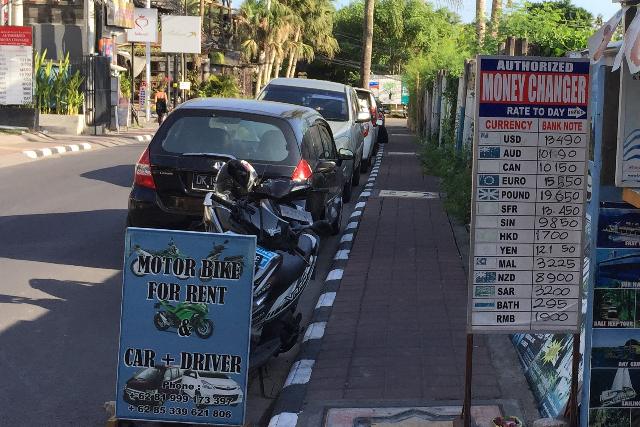
How to Exchange Leftover IDR to USD, EURO, AU$, ETC.
If you have any leftover Rupiahs (IDR), you can exchange them into other currencies in Bali before boarding your international flight. Popular options include the Australian dollar, Euro, and US dollar. There is no way the exchange rate could be as favorable as it was just after the first exchange. Yet, you would receive a far worse rate if you tried to do the exchange at a bank in your own country (if they exchange it at all)
One can say, the small shops that don’t show any price tags are the places you definitely need to bargain. In most cases they will not accept credit cards anyways. So cash is king here.
Traveler’s Cheques are a “memory of the past”.
More practical Travel Tips

100 Quick Tips & Insider Advise
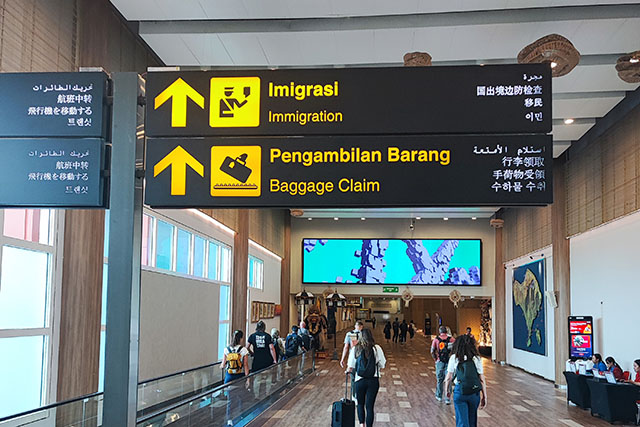
Arriving at Airport Bali Denpasar, Tips to get through DPS

Bahasa Indonesia Quick Guide - the Basics

Bali Sim Cards, eSIM, Mobile Data, Internet Connection

Cost of Traveling - How much does a visit to Bali cost

Currency Exchange Rates & Currency Converter

Electricity, Plugs and Sockets in Bali

Languages spoken in Bali - with English you can get around

Legal Drinking Age in Bali / Indonesia

Local Time in Bali Now and Time Differences

Money Guide Bali - How to Pay and settle your bills

Packing List - Pack your Suitcase for Bali
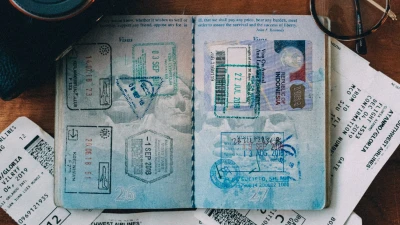
Passport Requirements for Bali / Indonesia

Tourist Behaviour Guidelines & Etiquette in Bali - essential Dos and Don'ts

Traveling to Bali with Kids
- Visa & Entry Regulations
- Bali Tourist Tax
- Bali DISCOUNT Card
- Hotels, Resorts, Villas
- Buy SIMCards & eSim
- Int. Driving License (mandatory)
- Airport Shuttle
- Scooter & Bike Rental
- Car Rental & Driver
- Reliable Medical Insurance
- Destinations | Where to Stay
- Going Out & Nightlife
- Weather & Seasons
- Complete Travel Guide
- Weddings & Getting Married
- Things to Do
- What’s-On Calendar
- Events @ W Bali
- Events @ Potato Head
- Events @ Rock Bar
- Living in Bali
No products in the cart.
Return to shop
- Argentina
- Australia
- Deutschland
- Magyarország
- New Zealand
- Österreich
- Singapore
- United Kingdom
- United States
- 繁體中文 (香港)
3 Best Travel Cards for Bali
Getting an international travel card before you travel to Bali can make it cheaper and more convenient when you spend in Indonesian Rupiah. You'll be able to easily top up your card in CAD before you leave Canada, to convert seamlessly to IDR for secure and flexible spending and withdrawals.
This guide walks through our picks of the 3 best travel cards available for anyone from Canada heading to Bali, like Wise, BMO or KOHO. We'll walk through a head to head comparison, and a detailed look at their features, benefits and drawbacks.

3 best travel money cards for Bali:
Let's kick off our roundup of the best travel cards for Bali with a head to head comparison on important features. Here's an overview of the providers we've picked to look at, for customers looking for ways to spend conveniently overseas when travelling from Canada:
Each of the international travel cards we’ve picked out have their own features and fees, which may mean they suit different customer needs. Keep reading to learn more about the features, advantages and disadvantages of each - plus a look at how to order the travel card of your choice before you head off to Bali.
Wise travel card
Open a Wise account online or in the Wise app, to order a Wise travel card you can use for convenient spending and withdrawals in Bali. Wise accounts can hold 40+ currencies, so you can top up in CAD easily from your bank or using your card. Whenever you travel, to Bali or beyond, you’ll have the option to convert to the currency you need in advance if it’s supported for holding a balance, or simply let the card do the conversion at the point of payment.
In either case you’ll get the mid-market exchange rate with low, transparent fees whenever you spend in IDR, plus some free ATM withdrawals every month - perfect if you’re looking for easy ways to arrange your travel cash.

Wise features
Wise travel card pros and cons.
- Hold and exchange 40+ currencies with the mid-market rate
- Spend seamlessly in IDR when you travel
- Some free ATM withdrawals every month, for those times only cash will do
- Ways to receive payments to your Wise account conveniently
- Manage your account and card from your phone
- ATM fees apply once you've exhausted your monthly free withdrawals
- Physical cards may take 14 days to arrive (you can use your virtual card right away)
How to apply for a Wise card
Here’s how to apply for a Wise account and order a Wise travel card in Canada:
Open the Wise app or desktop site
Select Register and confirm you want to open a personal account
Register with your email, Facebook, Apple or Google ID
Upload your ID document to complete the verification step
Tap the Cards tab to order your card
Confirm your mailing address, and your card will be on the way, and should arrive in 14 days
BMO travel card
If you’re looking for a card from a major bank for spending in Bali, you may be considering BMO. There are a few different card options which may appeal to travellers, including a prepaid card which allows you to top up in CAD and spend in IDR with a foreign transaction fee. This is a useful product when overseas as it’s not linked to your normal bank account - but the fees do push up costs overall.
Alternatively, check out the BMO credit card options - these are helpful if you want to spread the costs of your travel over a few months, but can also come with their own fees and charges.
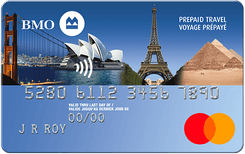
BMO features
Bmo travel card pros and cons.
- Selection of cards including credit and prepaid options
- Not linked to your everyday account which can be more secure when spending overseas
- Various perks available depending on the card you pick
- Full range of banking services available
- 2.5% foreign transaction fee for prepaid card
- 6.95 CAD annual fee for prepaid card - credit cards are also likely to have an annual fee
- ATM fees and cash advance charges apply
How to apply for a BMO card
Here’s how to apply for a BMO account and order a travel card in Canada:
Visit the BMO website or app
Select the card you want - for a prepaid Mastercard there’s no credit check, spo ordering is quick and easy
Tap Apply now and complete the details as prompted
Pay any annual fee required
Your card will be mailed to you
KOHO travel card
KOHO has several different cards which could be handy for spending in Bali. There are basic KOHO card options which have a foreign transaction fee of 1.5%, or you can choose to upgrade to a card with a monthly fee which may mean your foreign transaction fee is either waived or reduced. You’ll need to top up a balance in CAD, and there’s no option to switch over to IDR before you travel - but you can easily keep an eye on all your transactions and the applied exchange rates in the KOHO app.
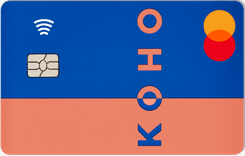
KOHO features
Koho travel card pros and cons.
- Various cards available depending on your needs
- Widely accepted
- Some accounts offer extra perks like no foreign transaction fee or cash back
- Virtual cards available
- 1.5% foreign transaction fee for the basic card
- ATM fees apply when overseas, which vary depending on the ATM operator
- Some accounts have monthly fees
How to apply for a KOHO card
Here’s how to apply for a KOHO account and order a travel card in Canada:
Visit the KOHO website or app
Select the card you want to apply for
Tap Open account and complete the details as prompted
Your card will be mailed to you once your account has been verified and any required fee has been settled
What is a travel money card?
A travel money card is a card you can use for secure and convenient payments and withdrawals overseas.
You can use a travel money card to tap and pay in stores and restaurants, with a wallet like Apple Pay, or to make ATM withdrawals so you'll always have a bit of cash in your pocket when you travel.
Although there are lots of different travel money cards on the market, all of which are unique, one similarity you'll spot is that the features and fees have always been optimised for international use. That might mean you get a better exchange rate compared to using your normal card overseas, or that you run into fewer fees for common international transactions like ATM withdrawals.
Travel money cards also offer distinct benefits when it comes to security. Your travel money card isn't linked to your Canadian dollar everyday account, so even if you were unlucky and had your card stolen, your primary bank account remains secure.
Travel money vs prepaid card vs travel credit card
It's helpful to know that you'll be able to pick from several different types of travel cards, depending on your priorities and preferences. Travel cards commonly include:
- Travel debit cards
- Travel prepaid cards
- Travel credit cards
They all have distinct benefits when you head off to Bali or elsewhere in the world, but they do work a bit differently.
Travel debit and prepaid cards are usually linked to an online account, and may come from specialist digital providers - like the Wise card. These cards are usually flexible and cheap to use. You'll be able to manage your account and card through an app, although you can also often add money in person by visiting a branch, if the card provider has in-person branches.
Travel credit cards are different and may suit different customer needs. As with any other credit card, you may need to pay an annual fee or interest and penalties depending on how you manage your account - but you could also earn extra rewards when spending in a foreign currency, or travel benefits like free insurance for example. Generally using a travel credit card can be more expensive compared to a debit or prepaid card - but it does let you spread out the costs of your travel across several months if you'd like to and don't mind paying interest to do so.
What is a prepaid travel money card best for?
Let's take a look at the advantages of using a prepaid travel money card for travellers going to Bali. While each travel card is a little different, you'll usually find some or all of the following benefits:
- Hold and exchange foreign currencies - allowing you to lock in exchange rates and set a travel budget before you leave
- Convenient for spending in person and through mobile wallets like Apple Pay, as well as for cash withdrawals
- You may find you get a better exchange rate compared to your bank - and you'll usually be able to avoid any foreign transaction fee, too
- Travel cards are secure as they're not linked to your everyday CAD account - and because you can make ATM withdrawals when you need to, you can also avoid carrying too much cash at once
Overall, travel cards offer flexible and low cost ways to avoid bank foreign transaction and international ATM fees, while accessing decent exchange rates.
How to choose the best travel card for Bali
We've picked out 3 great travel cards available in Canada - but there are also more options available, which can make choosing a daunting task. Some things to consider when picking a travel card for Bali include:
- What exchange rates does the card use? Choosing one with the mid-market rate or as close as possible to it is usually a smart plan
- What fees are unavoidable? For example, ATM charges or top up fees for your preferred top up methods
- Does the card support a good range of currencies? Getting a card which allows you to hold and spend in IDR can give you the most flexibility, but it's also a good idea to pick a card with lots of currency options, so you can use it again in future, too
- Are there any other charges? Check in particular for foreign transaction fees, local ATM withdrawal fees, inactivity fees and account close fees
Ultimately the right card for you will depend on your specific needs and preferences. If you're looking for a low cost card with the mid-market rate, which you can use in 150+ countries, the Wise card may be a good fit. If you'd prefer to pay a monthly fee to get higher no-fee transaction limits, take a look at Wise. And if you need to get a card in a hurry, check out a travel card from a provider with a physical branch network, or your high-street bank.
What makes a good travel card for Bali
The best travel debit card for Bali really depends on your personal preferences and how you like to manage your money.
Overall, it pays to look for a card which lets you minimise fees and access favourable exchange rates - ideally the mid-market rate. While currency exchange rates do change all the time, the mid-market rate is a good benchmark to use as it’s the one available to banks when trading on wholesale markets. Getting this rate, with transparent conversion fees, makes it easier to compare costs and see exactly what you’re paying when you spend in IDR.
Other features and benefits to look out for include low ATM withdrawal fees, complimentary travel insurance, airport lounge access or emergency cash if your card is stolen. It’s also important to look into the security features of any travel card you might pick for Bali. Look for a card which uses 2 factor authentication when accessing the account app, which allows you to set instant transaction notifications, and which has easy ways to freeze, unfreeze and cancel your card with your phone.
When you’re planning your trip to Bali, bear in mind that cash is still a primary payment method, and many merchants and public service providers won’t accept a card. You’ll want a travel card which allows low cost cash withdrawals so you’ve always got some IDR in your pocket - and you can also keep hold of your card as a convenient back up in case of emergency too. Choose a card with no ongoing fees and no inactivity costs, so you can use it for your next trip abroad to get the most possible use out of it.
Ways to pay in Bali
Cash and card payments - including contactless, mobile wallet, debit, credit and prepaid card payments - are the most popular ways to pay globally.
In Bali cash is a very popular payment method. While you may find cards are accepted in major hotels and chain stores or very busy tourist areas, many merchants prefer cash. Make sure you’ve always got some IDR in cash in your wallet by making ATM withdrawals with your travel card whenever you need to.
Which countries use IDR?
You’ll find that IDR can only be used in Bali. If you don’t travel to Bali frequently it’s worth thinking carefully about how much to exchange so you’re not left with extra foreign currency after your trip. Or pick a travel card from a provider like Wise or KOHO which lets you leave your money in CAD and convert at the point of payment with no penalty.
What should you be aware of when travelling to Bali
You’re sure to have a great time in Bali - but whenever you’re travelling abroad it's worth putting in a little advance thought to make sure everything is organised and your trip goes smoothly. Here are a few things to think about:
1. Double check the latest entry requirements and visas - rules can change abruptly, so even if you’re been to Bali before it’s worth looking up the most recent entry requirements so you don’t have any hassle on the border
2. Cash is a widespread payment method - so you’ll need some IDR in your pocket when you travel to Bali. You can sort out your travel money by visiting an exchange office here in Canada, or you can wait until you arrive and make an ATM withdrawal in IDR at the airport when you land. Bear in mind that currency exchange at exchange offices at the airport, either in Canada or in Bali can be expensive - so if you’re carrying CAD in cash and need to exchange it, head into a town centre to do so.
3. Get clued up on any health or safety concerns - get travel insurance before you leave Canada so you have peace of mind. It’s also worth reading up on any common scams or issues experienced by tourists. These tend to change over time, but may include things like rip off taxis or tour agents which don’t offer fair prices or adequate services.
Conclusion - Best travel cards for Bali
Ultimately the best travel card for your trip to Bali will depend on how you like to manage your money. Use this guide to get some insights into the most popular options out there, and to decide which may suit your specific needs.
FAQ - best travel cards for Bali
When you use a travel money card you may find there’s an ATM withdrawal fee from your card issuer, and there may also be a cost applied by the ATM operator. Some of our travel cards - like the Wise card - have some no fee ATM withdrawals every month, which can help keep down costs.
Travel money cards may be debit, prepaid or credit cards. Which is best for you will depend on your personal preferences. Debit and prepaid cards are usually pretty cheap and secure to spend with, while credit cards may have higher fees but often come with extra perks like free travel insurance and extra reward points.
There’s no single best prepaid card for international use. Look out for one which supports a large range of currencies, with good exchange rates and low fees. This guide can help you compare some popular options, including Wise, BMO or KOHO.
Yes, you can use your local debit card when you’re overseas. However, it’s common to find extra fees apply when spending in foreign currencies with a regular debit card. These can include foreign transaction fees and international ATM charges.
Usually having a selection of ways to pay - including a travel card, your credit or debit card, and some cash - is the best bet. That means that no matter what happens, you have an alternative payment method you can use conveniently.
Yes. Most travel debit cards have options to make ATM withdrawals. Check the fees that apply as card charges do vary a lot. Some cards have local and international fees on all withdrawals, while others like Wise let you make some no fee withdrawals monthly before a fee kicks in.
Both Visa and Mastercard are globally accepted. Look out for the logo on ATMs and payment terminals in Bali.
The cards you see on this page are ordered as follows:
For card providers that publish their exchange rates on their website, we used their CAD / IDR rate to calculate how much Indonesian Rupiah you would receive when exchanging / spending $5,000 CAD. The card provider offering the most IDR is displayed at the top, the next highest below that, and so on.
The rates were collected at 15:54:21 GMT on 19 February 2024.
Below this we display card providers for which we could not verify their exchange rates. These are displayed in alphabetical order.
Send international money transfer
More travel card guides.
Bali Travel Money Guide
Find out all you need to know about the Indonesian Rupiah and how best to manage your money in Bali with our Bali travel money guide.
What is Bali’s Currency?
Denominations of rupiah, rupiah notes, rupiah coins, balinese money payment options, rupiah coins and notes, special offer, load aud on your travelex money card and save when spending in bali, how much does a trip to bali from australia cost, how much does it cost to travel in bali, bali food costs, bali transport costs, activity prices in bali, bali visa costs, common money phrases in indonesian, good to know - bali money tips, other ways to get foreign currency, travel insurance, travel guide, other services, historical rates, track the idr, find a store, international sim cards, travel to bali - frequently asked questions, what currency is used in bali, can you use an australian bank card to withdraw rupiah in bali, do they take aud in bali, what is go-jek and how can it save me money, travel to japan faq, travelex info, join the conversation, customer support.

Is it worth getting a travel money card for Bali?

It’s a myth you need a travel card for Bali | Digital art by Simon
Table of Contents Show
Do I need a travel card for Bali?
No, you don't need a travel card for Bali. Personally, I'm not a fan of travel cards. If you have an ATM card from your home country that allows international withdrawals, and you bring that along with some cash, you'll be all set.
The truth about travel cards
The truth is that travel cards are just a way for card issuers to get a slice of your money, using fear of loss and theft as a sales tactic. They make money on the exchange rate (despite claiming you’ll get a good rate) and the use of your money while it’s locked on the card.
Here’s what I recommend:
My partner and I have done long and short stays in Bali over 25 years using the following method and never had a problem and always felt I got a way better deal.
Bring 40% to 60% of your travel budget in cash of your home country. Nice bigger denomination notes, with no marks or tears.
Leave the remainder of your travel budget in your home bank account to access in Bali at ATMs. You just need a standard bank account with an ATM card that is enabled for overseas transactions.
I have found a surprisingly good exchange rate when I have used ATMs in Bali ….quite close to the rate offered for cash at a reputable money changer…it will be a little less, but not a bad price to pay for the safety of not carrying all cash.
You can also use a VISA or Mastercard for credit card transactions. Often you can have that card linked to your checking or savings account as well. However, I like having a credit card separate from my checking/savings ATM card, further reducing risk and loss if a theft occurs. Keep them in separate locations, not together in the same wallet or money belt.
Contact your home back before you go and make sure your card and account will be accessible using overseas ATMs. Let them know your dates of travel as well so they don’t flag your legitimate transactions as fraudulent.
If you are trqaveling with your partner , split your cash and bank money equally - each carry 25% of your total cash and each have at least one home bank account with 25% of your bank money. That way if either of you is robbed you will loose less.
If you are going on a longer trip and Bali is just one stop, I suggest getting two home country bank accounts with different banks and split your money equally between these accounts. Keep one card in your wallet or money belt and the other separate so if one is lost of stolen you still have access to money.
Want the full story?
Read our MEGA article, Bali Travel Tips for a complete list of tips and resources.
Other articles:
How much USD should I bring to Bali?
Is it better to have cash or card in bali, the dirty secrets travel card companies don’t tell you, dirty secret #1.
One of the reasons travel card sellers sell their cards is because they claim you will get a better exchange rate.
I think that is rubbish . You will get the best rate if you change at a reputable money changer when you arrive in Bali.
This is particularly true if you come from a country that Bali money changers accept currency from. These countries are: Australia, Brunei, Canada, China, Denmark, Euro, Hong Kong, Japan, Malaysia, New Zealand, Singapore, South Africa, South Korea, Switzerland, Thailand, the United Kingdom, or the United States.
If you come from a country like, for example, India and you need to exchange Indian rupees into US dollars before you leave home, you might see a benefit in going for a travel card that allows you to buy Indonesian Rupiah directly. You’ll just need to do the math.
Dirty secret #2
That leads me to the other reason I don’t like travel cards: if you have money left on them at the end of your trip, it can be hard, or expensive, to get your money back into your pocket. So don’t go there if you don’t have to.
The risk of theft in Bali is actually very low
There is very little theft in Bali, so the ‘risks’ travel card sprukers will try to scare you with are actually way overstated. Of course we have to be careful when traveling and be mindful of cash and cards, but you have to be careful with a travel card anyway. So what’s the difference?
But aren’t travel cards popular?
You’ll see travel cards being pushed by travel websites a lot - because they make a commission if you buy one via their link. So travel cards look popular because they are promoted everywhere.
Heck, I could be making money recommending travel cards to my readers, but I think they are a rip and just won’t do it.
I just think they are not necessary, and I would rather you keep the commission and spend it on yourself.
Conclusion: Is it Worth getting a Travel Money Card for Bali?
No . Follow my advice above and just bring a combination of cash and home bank ATM and or credit card and you will be sweet. Save the money and spend it on yourself.
1. What is a travel money card and is it worth using for Bali?
A travel money card, like a debit or credit card, can be loaded with Indonesian rupiah making it a potentially cost-effective payment method for Bali travel.
2. Are there other currency exchange options for Bali than just using cards?
Yes! Bring cash to Bali and use a reputable foreign currency exchange outlet to change it into Rupiah.
3. How can I save money on currency exchange when traveling to Bali?
Bring cash. Cash is king. Be safe by bringing 40-60% cash and the balance in a bank account you can access from a Bali ATM.
4. What should I consider when deciding how to manage my overseas spending in Bali?
Maximizing convenience and security with your choice of payment methods should be your main focus; consider if paying through networks like visa will suit your needs better or if having physical cash might work more effectively.

5. Should I get travel insurance when planning my expenses for a trip to Bali?
Getting Travel insurance could protect against potential losses incurred due to unforeseen circumstances during international travels; think about this as an additional layer of security while managing your finance in foreign lands.

Editorial Team Hi, I’m Simon St John , Baligram’s writer. I am a published Author of travel guide books and a Travel Writer. I have visited Bali more than 35 times over a 25-year period. I share my passion for Bali’s nature, culture, and adventure in this travel guide. I welcome your feedback and ideas! Read about Simon and about Baligram .
Here Are the Four Best Travel Money Cards in 2024

François Briod
Co-Founder of Monito and money transfer expert, François has been helping Monito’s users navigate the jungle of money transfer fees, bad exchange rates and tricks for the last ten years.
Jarrod Suda

A writer and editor at Monito, Jarrod is passionate about helping people apply today’s powerful finance technologies to their lives. He brings his background in international affairs and his experiences living in Japan to provide readers with comprehensive information that also acknowledges the local context.
Links on this page, including products and brands featured on ‘Sponsored’ content, may earn us an affiliate commission. This does not affect the opinions and recommendations of our editors.
From the multitude of bank fees and ATM charges to hidden currency conversion fees, there's no question that spending your money abroad while travelling can be costly — and that's saying nothing about the cost of the holiday itself!
As you prepare for your trip abroad, the golden rule is that you'll save the most money by using the local currency of your destination. This means withdrawing local cash at foreign ATMs and using a debit card to pay directly in the local currency. For example, if you're from the UK, using your bank's debit card that accesses your British pounds will likely lose you money to hidden fees at ATMs abroad and at local merchants.
In general, we rate Revolut as the best travel card all around. Its versatile account and card can be used to spend like a local pretty much anywhere in the world. ✨ Get 3 months of free Revolut Premium as a Monito reader with our exclusive link .
If you're from the EU, UK, or US, here are a few more specific recommendations to explore:
- Best for travelling from the UK: Chase
- Best for travelling from the US: Chime ®
- Best for travelling from the Eurozone: N26
If it's not possible for you to spend in the local currency when travelling abroad, then spending in your home currency while using a card that doesn't charge any hidden exchange rate markups from your bank (e.g. only the VISA or Mastercard exchange rates to convert currency) is still a good bet for most people.
In this guide, we explore cards that waive or lower ATM fees and that hold multiple currencies. Spend on your holiday like a local and enjoy peace of mind after each tap and swipe!
Best Travel Cards (And More!) at a Glance
Best travel money cards.
- 01. What is the best best multi currency card? scroll down
- 02. Are prepaid currency cards really it? scroll down
- 03. Monito's best travel money card tips scroll down
- 04. FAQ about the best travel cards scroll down
Revolut: Best All-Rounder
Revolut is one of the most well-known fintechs in the world because it offers services across Europe, the Americas, Asia, and Oceania.

- Trust & Credibility 8.9
- Service & Quality 7.9
- Fees & Exchange Rates 8.3
- Customer Satisfaction 9.4
Revolut is available in many countries. You can double-check if it's available in yours below:
Here's an overview of Revolut's plans:
Revolut Ultra is currently only available in the UK and EU.
Like Wise, Revolut converts your currency to the local currency of your travel destination at an excellent exchange rate (called the 'Revolut Rate', which, on weekdays, is basically on par with the rate you see on Google), making it a good way to buy foreign currency before travelling abroad. As always though, bear in mind that Revolut's exchange rates might be subject to change.
Revolut's Standard Plan only allows currency exchange at the base mid-market exchange rate for transfers worth £1,000 per month. ATM withdrawals are also free for the first €200 (although third-party providers may charge a withdrawal fee, and weekend surcharges may also apply). These allowances can be waived by upgrading memberships.
N26: Good Bank For EU Travellers
One of the most well-known neobanks in Europe, N26 and its debit card operate in euros only. However, N26 is a partner with Wise and has fully integrated Wise's technology so that you never have to pay foreign transaction fees on your purchases outside of the eurozone. While N26 does not have multi-currency functionality, N26 will apply the real exchange rate on all your foreign purchases and will never charge a commission fee — making N26's card a powerful card for EU/EEA residents who travel across the globe.

- Trust & Credibility 7.9
- Service & Quality 8.0
- Fees & Exchange Rates 9.3
- Customer Satisfaction 8.1
These are the countries in which you can register for an N26 account:
And here is an overview of the various plans and account:
This low-fee option for banking is also ideal for travellers who do not belong to a European bank but frequent the Eurozone. For example, N26 is available for residents and citizens of Switzerland, Norway, and other European Economic Area countries that do not run on the Euro.
These citizens, who are in close proximity to the Eurozone, will save each time they spend with an N26 card while in Europe. N26 provides three free ATM withdrawals per month in euros but does charge a 1.7% fee per ATM withdrawal outside of Europe.
Take a look at our guide to the best travel cards for Europe to learn more.
Wise: Best For Multi-Currency Balances
Load up to 54 currencies onto this card at the real exchange rate, giving you access to truly global travel.

- Trust & Credibility 9.3
- Service & Quality 8.9
- Fees & Exchange Rates 7.6
- Customer Satisfaction 9.6
These are the countries in which you can order a Wise debit card:
Unlike banks, credit unions, airport kiosks, and foreign ATMs, Wise is transparent about never charging a hidden exchange rate margin when you convert your home currency into up to 54 currencies. The live rate you see on Google or XE.com is the one you get with Wise.
An industry-low commission fee per transaction will range from 0.35% to 2.85%, depending on the currency.
Chase: Great UK Bank For Travel
A recent arrival from the USA, Chase is one of the UK’s newest digital challenger banks and comes with a rock-solid reputation and no monthly charges, no currency conversion charges, no withdrawal fees, and no other charges for everyday banking from Chase. It’s a simple, streamlined bank account with an excellent mobile banking app and a great cashback offer. However, it doesn’t yet offer more advanced features like international money transfers, joint accounts, business banking, overdrafts and loans, and teen or child accounts.

- Trust & Credibility 10
- Fees & Exchange Rates 10
- Customer Satisfaction 8.7
Chime: Great Account For US Travelers
Chime is a good debit card for international travel thanks to its no foreign transaction fees¹. Unlike multi-currency accounts like Revolut (which let you hold local currency), Chime uses the live exchange rate applied by VISA. This rate is close to the mid-market rate, and Chime does not add any extra markup to your purchases, although out-of-network ATM withdrawal and over-the-counter advance fees may still apply.

- Trust & Credibility 9.5
- Service & Quality 8.8
- Fees & Exchange Rates 9.8
While Chime waives ATM fees at all MoneyPass, AllPoint, and VISA Plus Alliance ATMs within the United States, this fee waiver does not extend to withdrawals made outside the country. For withdrawals abroad, Chime applies a $2.50 fee per transaction, with a daily withdrawal limit of $515 or its equivalent. This is in addition to any fees charged by the ATM owner. Therefore, we recommend Chime primarily for card purchases rather than relying on it for withdrawing cash while traveling internationally.
- No foreign transaction fees ¹;
- Uses VISA's exchange rate ( monitor here ):
- A $2.50 fee per ATM withdrawal made outside of the United States;
- More info: Read our Chime review or visit their website .
Best Travel Money Cards in 2024 Compared by Country
In the table below, see our comparison summary of the four best travel cards for 2024 by country:
Last updated: 8 January 2024
What's The Best Prepaid Card to Use Abroad?
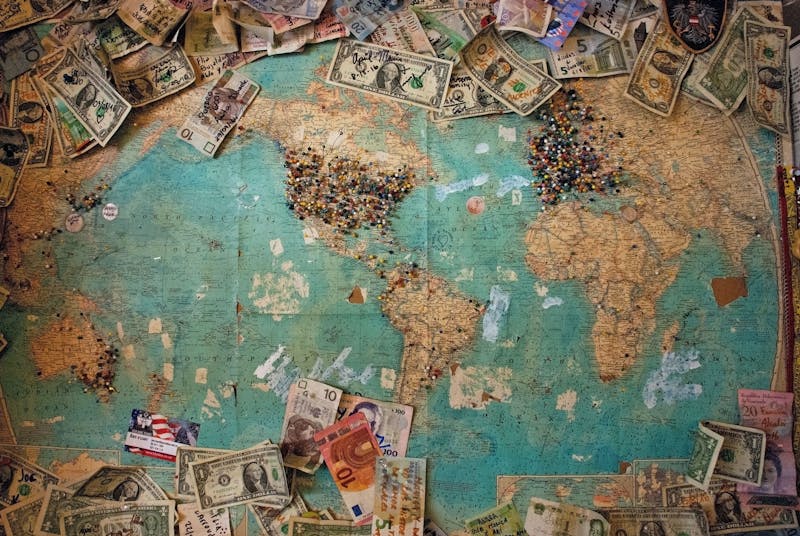
Travel cards come in many varieties, such as standard credit cards or debit cards with no foreign transaction fees or cards that waive all foreign ATM withdrawal fees.
What is a Multi-Currency Card?
Multi-currency cards are a specific type of travel card that allows you to own all kinds of foreign currencies, which you can instantly access when you pay with your card abroad. By spending the local currency in the region of travel , you bypass poor foreign exchange rates. ATMs and cashless payment machines will treat your card like a local card.
We have already mentioned a few multi-currency cards in this review, but we will also introduce Travelex . Travelex's Money Card also allows you to top up several foreign currencies — albeit at exchange rates slightly poorer than the real mid-market rate .
Wise Account
Wise has one of the best multi-currency cards available on the market.

Read our full review for more details.
Revolut is impressive for its vast options in currencies and its additional services.
Our in-depth review explores Revolut's services in detail.
Travelex offers a prepaid travel money card that supports 10 currencies and waives all ATM withdrawal fees abroad.

- Trust & Credibility 9.0
- Service & Quality 5.8
- Fees & Exchange Rates 7.1
- Customer Satisfaction 9.3
Travelex charges fees, which fluctuate according to the exchange rates of the day, in order to convert your home currency into the currencies that it supports. But once the currency is on the card, you'll be able to spend like a local. Learn more with our full review .
Don’t Let Banks, Bureaux de Change, and ATMs Eat Your Lunch 🍕!
Are you withdrawing cash at an ATM in the streets of Paris? Exchanging currencies at Gatwick airport? Paying for a pizza with your card during a holiday in Milano? Every time you exchange currencies, you could lose between 2% to 20% of your money in hidden fees . Keep reading below to make sure you recognize and avoid them.
Currency Exchange Fees Eating My Lunch? What’s That?
You’re often charged a hidden fee in the form of an alarming exchange rate.
At any given time, there is a so-called “ mid-market exchange rate ” — this is the real exchange rate you can see on Google . However, the money transfer provider or bank you use to exchange currencies rarely offers this exchange rate. Instead, you will get a much worse exchange rate. They pocket this margin between the actual rate and the poor exchange rate they apply, allowing the bank or money transfer provider to profit from the currency exchange.
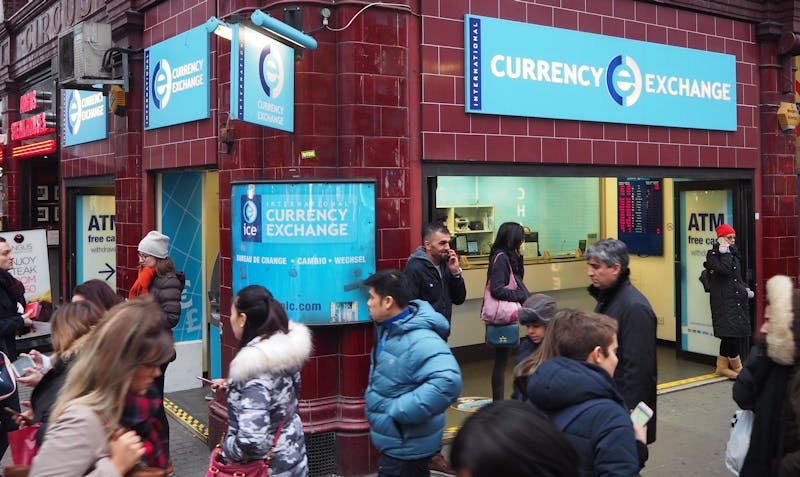
In other words, you or your recipient will receive less foreign currency for each unit of currency you exchange. All the while, the provider will claim that they charge zero commission or zero fees.
So the question now is… how can you avoid them? Thankfully, the best travel money cards will allow you to hold the local currency, which you can access instantly with a tap or swipe. Carrying the local currency avoids exchange rate margins on every purchase.
Top Travel Money Tips
- Avoid bureaux de change. They charge between 2.15% and 16.6% of the money exchanged.
- Always pay in the local currency and never accept the dynamic currency conversion .
- Don't use your ordinary debit or credit card unless it's specifically geared toward international use. Doing this will typically cost you between 1.75% and 4.25% per transaction. Instead, use one of the innovative travel money cards below.
By opting for a travel card without FX fees, you can freely swipe your card abroad without worrying about additional charges. However, saving money doesn't stop there. To make the most out of your travel budget, consider using Skyscanner , one of the most powerful flight search engines available that allows you to compare prices from various airlines and find the best deals.
With Skyscanner's user-friendly interface and comprehensive search options, you can discover cheap flights and enjoy your holidays with peace of mind and more money in your pocket.
Best Travel Money Card Tips

When you convert your home currency into a foreign currency, foreign exchange service providers will charge you two kinds of fees :
- Exchange Rate Margin: Providers apply an exchange rate that is poorer than the true "mid-market" exchange rate . They keep the difference, called an exchange rate margin .
- Commission Fee: This fee is usually a percentage of the amount converted, which is charged for the service provided.
With these facts in mind, let's see what practices are useful to avoid ATM fees, foreign transaction fees, and other charges you may encounter while on your travels.
Tip 1: While Traveling, Avoid Bureaux de Change At All Costs
Have you ever wondered how bureaux de change and currency exchange desks are able to secure prime real estate in tourist locations like the Champs-Élysées in Paris or Covent Carden in London while claiming to take no commission? It’s easy: they make (plenty of) money through hidden fees on the exchange rates they give you.
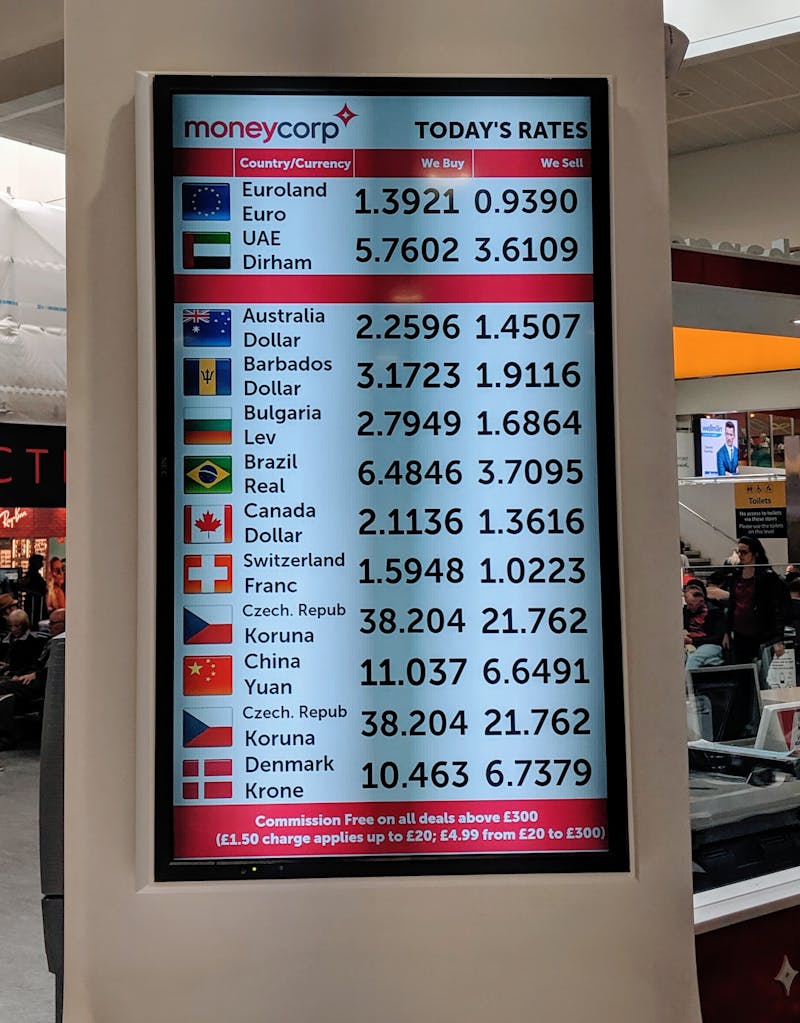
Our study shows that Bureaux de Change in Paris charges a margin ranging from 2.15% at CEN Change Dollar Boulevard de Strasbourg to 16.6% (!!) at Travelex Champs-Élysées when exchanging 500 US dollars into euros for example.
If you really want cash and can’t wait to withdraw it with a card at an ATM at your destination, ordering currencies online before your trip is usually cheaper than exchanging currencies at a bureau de change, but it’s still a very expensive way to get foreign currency which we, therefore, would not recommend.
Tip 2: Always Choose To Pay In the Local Currency

Don’t fall for the dynamic currency conversion trap! When using your card abroad to pay at a terminal or withdraw cash at an ATM, you’ve probably been asked whether you’d prefer to pay in your home currency instead of the local currency of the foreign country. This little trick is called dynamic currency conversion , and the right answer to this sneaky question will help you save big on currency exchange fees.
As a general rule, you always want to pay in the local currency (euros in Europe, sterling in the UK, kroner in Denmark, bahts in Thailand, etc.) when using your card abroad, instead of accepting the currency exchange and paying in your home currency.
This seems like a trick question - why not opt to pay in your home currency? On the plus side, you would know exactly what amount you would be paying in your home currency instead of accepting the unknown exchange rate determined by your card issuer a few days later.
What is a Dynamic Currency Conversion?
However, when choosing to pay in your home currency instead of the local one, you will carry out what’s called a “dynamic currency conversion”. This is just a complicated way of saying that you’re exchanging between the foreign currency and your home currency at the exact time you use your card to pay or withdraw cash in a foreign currency, and not a few days later. For this privilege, the local payment terminal or ATM will apply an exchange rate that is often significantly worse than even a traditional bank’s exchange rate (we’ve seen margins of up to 8%!), and of course, much worse than the exchange rate you would get by using an innovative multi-currency card (see tip #3).
In the vast majority of times, knowing with complete certainty what amount you will pay in your home currency is not worth the additional steep cost of the dynamic currency conversion, hence why we recommend always choosing to pay in the local currency.
Tip 3: Don't Use a Traditional Card To Pay in Foreign Currency/Withdraw Cash Abroad

As mentioned before, providers make money on foreign currency conversions by charging poor exchange rates — and pocketing the difference between that and the true mid-market rate. They also make money by charging commission fees, which can either come as flat fees or as a percentage of the transaction.
Have a look at traditional bank cards to see how much you can be charged in fees for spending or withdrawing $500 while on your holiday.
These fees can very quickly add up. For example, take a couple and a child travelling to the US on a two-week mid-range holiday. According to this study , the total cost of their holiday would amount to around $4200. If you withdraw $200 in cash four times and spend the rest with your card, you would pay $123 in hidden currency exchange and ATM withdrawal fees with HSBC or $110 with La Banque Postale. With this money, our travellers could pay for a nice dinner, the entrance fee to Yosemite Park, or many other priceless memories.
Thankfully, new innovative multi-currency cards will help you save a lot of money while travelling. Opening an N26 Classic account and using the N26 card during the same US holidays would only cost $13.60.
Need Foreign Cash Anyway?
In many countries, carrying a wad of banknotes is not only useful but necessary to pay your way since not every shop, market stall, or street vendor will accept card payments. In these cases you'll have two options to exchange foreign currency cheaply:
1. Withraw at an ATM
As we've explored in great depth in this article, withdrawing money from a foreign ATM will almost always come with fees — at the very least from the ATM itself, and so it's therefore the best strategy to use a travel debit card that doesn't charge in specific ATM withdraw fees on its own to add insult to injury. That said, if you need cash, we recommend making one large withdrawal rather than multiple smaller ones . This way, you'll be able to dodge the fees being incurred multiple times.
2. Buy Banknotes (at a Reasonable Rate!)
As we've also seen, buying foreign currency at the airport, at foreign bank branches, or in bureaux de change in tourist hotspots can be surprisingly expensive. Still, not all exchange offices are equally pricey . If you're looking for a well-priced way to exchange your cash into foreign currency banknotes before you travel, Change Group will let you order foreign currency online and pick them up at the airport, train station, or a Change Group branch just before you leave for your holiday. A few pick-up locations in the UK include:
- London centre (multiple locations),
- Glasgow centre,
- Oxford centre,
- Luton Airport,
- Gatwick Airport,
- St. Pancras Station.
(Note that Change Group also has locations in the USA, Australia, Germany, Spain, Sweden, Austria, and Finland!)
Although its exchange rates aren't quite as good as using a low-fee debit card like Revolut, Change Group's exchange rates between popular currencies tend to be between 2% to 3%, which is still a lot better than you'll get at the bank or at a touristy bureau de change in the middle or Paris or Prague!
FAQ About the Best Travel Money Cards
Having reviewed and compared several of the industry's leading neobanks, experts at Monito have found the Wise Account to offer the best multi-currency card in 2024.
In general, yes! You can get a much better deal with new innovative travel cards than traditional banks' debit/credit cards. However, not all cards are made equal, so make sure to compare the fees to withdraw cash abroad, the exchange rates and monthly fees to make sure you're getting the best deal possible.
- Sign up for a multi-currency account;
- Link your bank to the account and add your home currency;
- Convert amount to the local currency of holiday destination ( Wise and Revolut convert at the actual mid-market rate);
- Tap and swipe like a local when you pay at vendors.
Yes, the Wise Multi-Currency Card is uniquely worthwhile because it actually converts your home currency into foreign currency at the real mid-market exchange rate . Wise charges a transparent and industry-low commission fee for the service instead.
More traditional currency cards like the Travelex Money Card are good alternatives, but they will apply an exchange rate that is weaker than the mid-market rate.
The Wise Multi-Currency Card is the best money card for euros because unlike banks, credit unions, airport kiosks, and foreign ATMs, Wise is transparent about never charging a hidden exchange rate margin when you convert your local currency into euros with them.
The live rate you see on Google or XE.com is the one you get with Wise . An industry-low commission fee will range from 0.35% to 2.85%. USD to EUR transfers generally incur a 1.6% fee.
Learn more about how to buy euros in the United States before your trip.
There are usually three types of travel cards, prepaid travel cards, debit travel cards and credit travel cards. Each have pros and cons, here's a short summary:
- Prepaid travel cards: You usually need to load cards with your home currency via a bank wire or credit/debit card top-up. You're then able to manage the balance from an attached mobile app and can use it to pay in foreign currencies or withdraw cash at an ATM abroad tapping into your home currency prepaid balance. With prepaid travel cards, as the name indicates, you can't spend more than what you've loaded before hand. Some prepaid card providers will provide ways to "auto top-up" when your balance reaches a certain level that you can customize. On Revolut for example, you can decide to top-up £100/£200/£500 from your debit card each time your balance reaches below £50.
- Debit travel cards: Some innovative digital banks, like N26 or Monzo, offer travel debit cards that have the same advantages than a Prepaid Travel Cards, except that they're debit card directly tapping into your current account balance. Like a Prepaid travel card, you can't spend more than the balance you have in your current account with N26 or Monzo, but you can activate an overdraft (between €1,000 or €10,000 for N26 or £1,000 for Monzo) if you need it, for a fee though.
Note that even if they're Prepaid or Debit cards, you can use them for Internet payments like a normal credit card.
- Credit travel cards: You can find credit cards made for international payments offering good exchange rates and low fees to withdraw money abroad, but you'll need to pay interests in your international payment if you don't pay in FULL at the end of every month and interest on your ATM withdrawals each day until you pay them back.
Why You Can Trust Monito
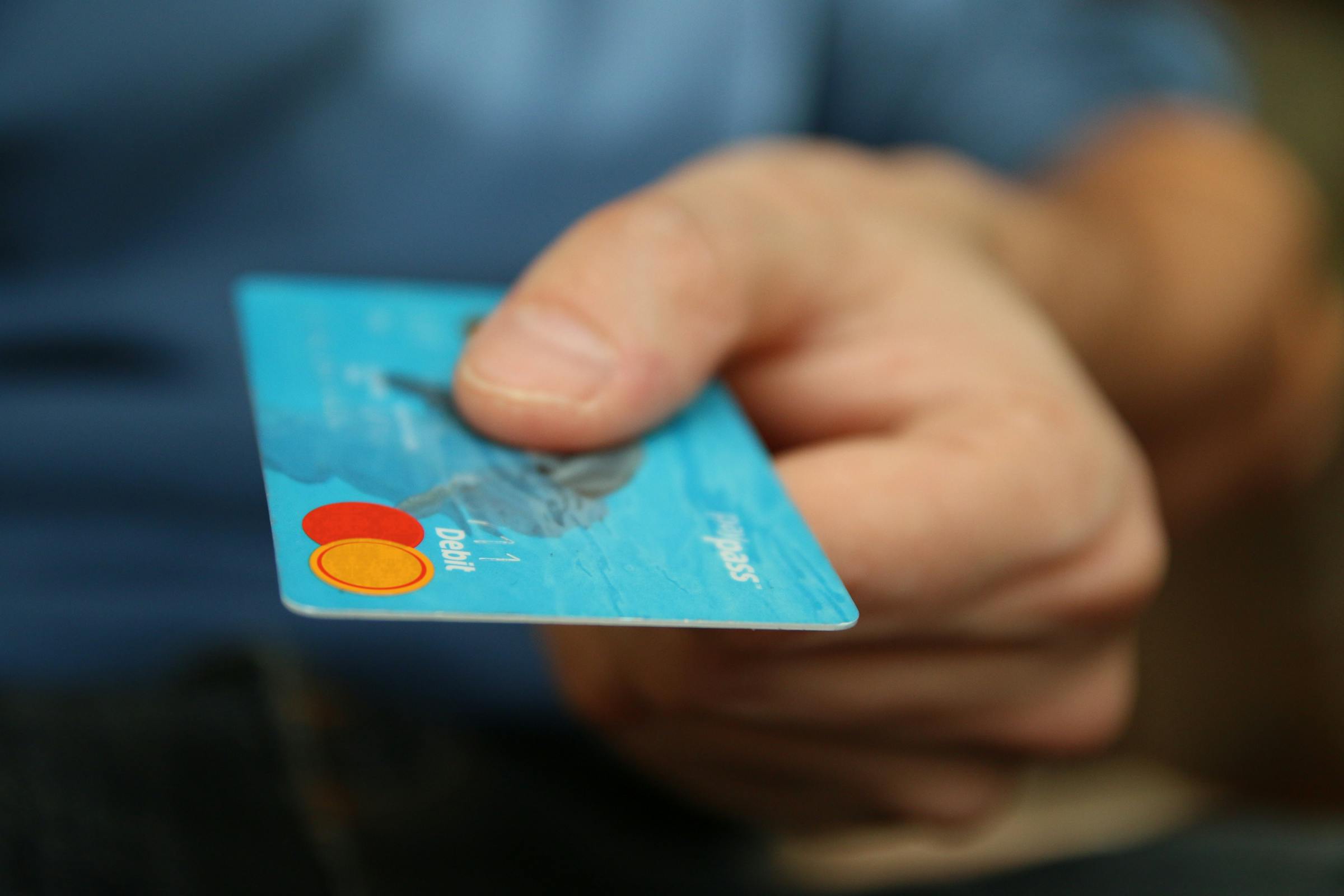
Our recommendations are built on rock-solid experience.
- We've reviewed 70+ digital finance apps and online banks
- We've made 100's of card transactions
- Our writers have been testing providers since 2013
Other Monito Guides and Reviews on Top Multi Currency Cards
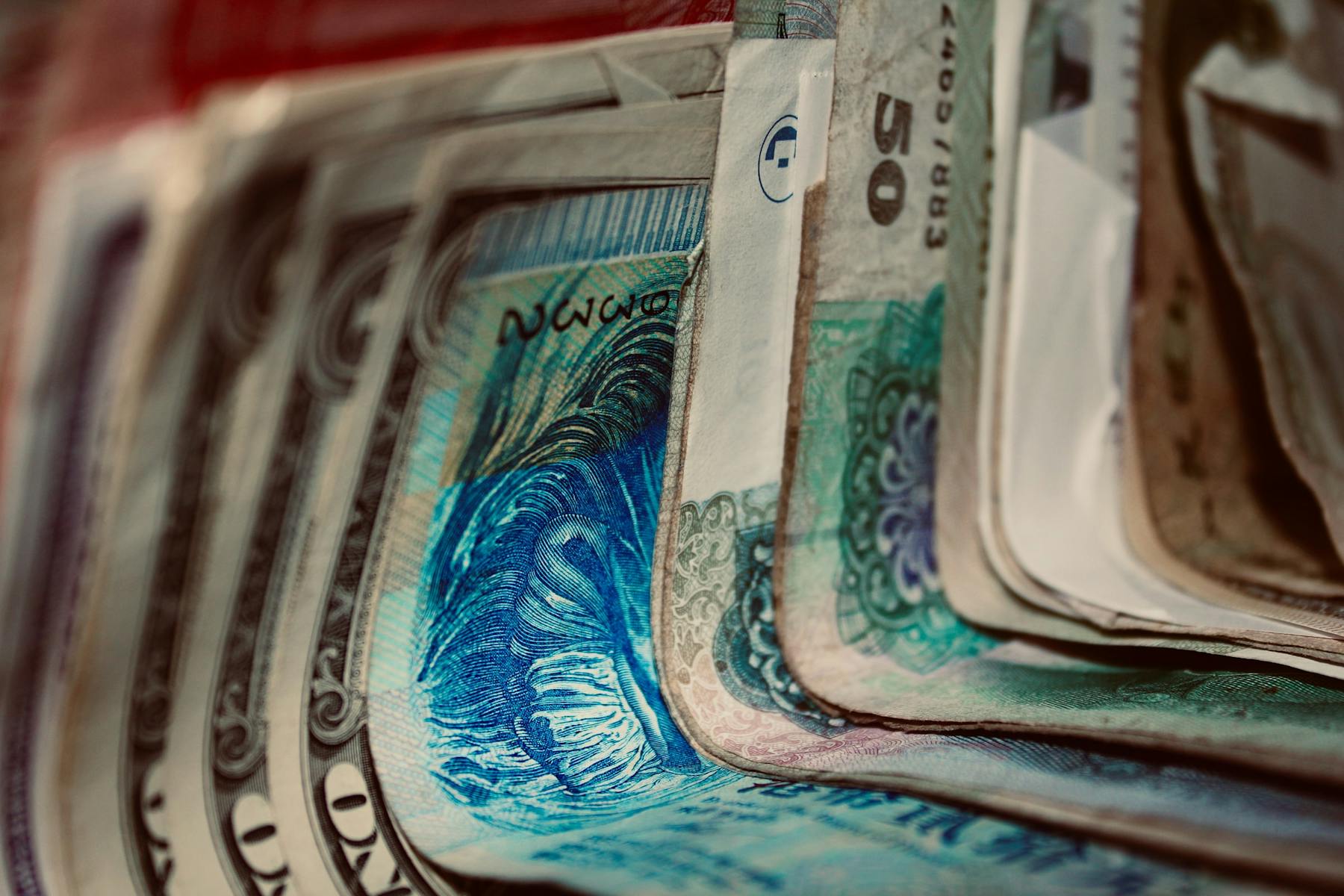
Why Trust Monito?
You’re probably all too familiar with the often outrageous cost of sending money abroad. After facing this frustration themselves back in 2013, co-founders François, Laurent, and Pascal launched a real-time comparison engine to compare the best money transfer services across the globe. Today, Monito’s award-winning comparisons, reviews, and guides are trusted by around 8 million people each year and our recommendations are backed by millions of pricing data points and dozens of expert tests — all allowing you to make the savviest decisions with confidence.
Monito is trusted by 15+ million users across the globe.
Monito's experts spend hours researching and testing services so that you don't have to.
Our recommendations are always unbiased and independent.
- United States
- United Kingdom
Travel Money Guide: Indonesia
Get from the beach bar to surfie havens with the right access to your holiday money..
In this guide
Compare travel money options for Indonesia
Travel card, credit card, or debit cards, how much rupiah do i need to bring to the indonesia, exchange rate history (aud to idr), how the different travel money products work in indonesia, a guide to indonesian banknotes and coins, find cash and atms in indonesia, get travel insurance quotes for your holiday in indonesia.
Travel Money Cards
Whether it's Bali, Lombok or any of the 17,000 islands that make up Indonesia, you'll need to figure out the best way to access your money.
If you're sticking to a swanky resort in a built-up area like Bali, you'll be fine with a no-fee debit or credit card and access to some cash for any smaller purchases along the way, like souvenirs and quick meals. If you're doing it loval style in a villa or heading off the beaten track, then having more Indonesian Rupiah available in cash is a must.
- Travel Credit Cards
- Travel Debit Cards
- Prepaid Travel Money Cards
What's in this Indonesia travel money guide?
A quick summary of travel money options for indonesia.
- Stephanie’s trip to Bali
- A guide to Indonesia Rupiah: banknotes and coins
- Finding cash and ATMs in Indonesia
- Find travel insurance for Indonesia

Whether you're on a quick business trip or taking a holiday, it's good to have an at least a couple of ways to access your money. There are currently no travel cards which allow you to load Indonesian rupiah. Compare travel credit cards and debit cards to take to Indonesia instead.
Choose a mix that suits your needs: for example a debit card for regular spending with a credit card for emergencies, or Indonesian currency supplemented by a debit card. Whatever mix you decide on, you want to have enough Indonesian currency in your pockets when travelling through Indonesia — even if it's enough for the first couple of days.
You're going to need to pay for a visa when you arrive in Indonesia. In places such as Denpasar airport, you have to pay cash, so make sure you have sufficient funds.
This table is a general summary of the travel money products in the market. Features and benefits can vary between cards.
*Prices are approximate and are subject to change.
*Exchange rates are accurate as of 3 September 2017
Today's exchange rate AUD to IDR
Using prepaid travel cards
If you're looking at taking a travel money card to Indonesia, think again. There are no travel money cards on the market that allow you to load and spend in Indonesian rupiah. Having said that, there are a couple of travel cards which may be suitable to take to Indonesia, including the CommBank Travel Money Card . One drawback, however, is that the CBA card charges the Visa or Mastercard currency conversion fee, plus 4.5%.
These cards should only really be considered if Indonesia is the first leg of your international holiday. The CommBank Travel Money Card offers up to 13 different international currencies and can be used all over the world. Furthermore, the Commonwealth Bank have a large number of ATMs and branches in Bali and Indonesia where you can use your CBA travel, debit or credit card and avoid the international ATM fee. However, due to the lack of support for Indonesian rupiah, the exchange rate margin when you load the card with funds and the fee structure, there are cheaper products to use in Indonesia than a travel card.
Travel credit cards with no foreign transaction fee
A credit card can be useful when travelling overseas – especially when it comes to big ticket items you may want to pay off over a couple of months, or hotel check-in where a deposit is required. Credit cards also give you access to emergency cash if you need it, and some credit cards have handy benefits like complimentary travel insurance when you charge the cost of your travel ticket to your account.
However, credit cards can be expensive, especially when it comes withdrawing cash at an ATM. Interest is charged straight away and you'll pay a cash advance fee. You may be able to avoid this keeping a positive balance on your card — each credit card issuer has different rules for keeping a positive balance. Read the FAQs section of our travel money page for more information.
Taking a debit card in Indonesia
Most debit cards on the market charge a 2-3% fee when you make a purchase outside of Australia. In fact, there's only one debit card available at the moment which waives the currency conversion fee: the Citibank Plus Transaction Account.
Using traveller's cheques
Traveller's cheques may not be as popular today as they used to be but they still offer some important advantages over other forms of travel money. When travelling to Indonesia, traveller's cheques have the added security of needing ID to be cashed. Plus, if they get lost or stolen, they can be replaced in a few days. There will also be a fee for purchasing and cashing traveller's cheques, so check these out too.
Stephanie's Bali Beach Holiday
- CommBank Travel Money Card
- Commonwealth Bank Low Rate Credit Card
- Commonwealth Bank Smart Access Mastercard Debit Card
Why did you take these cards with you?
Stephanie says she already had a CommBank Travel Money Card from her last holiday with a little money left on it. She withdrew the remaining funds from this card from a Commonwealth Bank ATM in Bali and saved on ATM withdrawal fees. She didn't bother reloading this card even though there is no reload charge from the Commonwealth Bank.
She used the Commonwealth Bank Smart Access Mastercard Debit Card once the money from her travel card ran out. Even though she was paying a little more for the currency conversion fee, she only used her card a couple of times to withdraw cash from CBA ATMs and her debit card offered a slightly better rate than her travel card.
Stephanie had her CommBank credit card as a backup and only used it a couple of times on her trip — she paid the remaining balance of her hotel bill and shouted her friends to dinner one night. he paid it off when she got back to Australia (within the 55 day interest free period) and didn't incur any interest charges.
Did you withdraw from ATMs?
Stephanie says she withdrew from Commonwealth Bank ATMs around the Kuta area. When she used her travel card, she only paid a few dollars each time. When she used her debit card to withdraw cash, a currency conversion fee was applied to her transaction.
Were there any places where you had trouble using any of your cards?
Stephanie mainly used cash in Bali. The times she did pay with her card, she was at an upmarket restaurant and major hotel chain.
What's your recommendation for the best form of travel money to take to Indonesia?
Stephanie says one of her friends used the Citibank Plus Transaction Account, and she says she'll get this account next time she travels overseas. Citibank waives the international ATM fee and currency conversion fee and there's no monthly charge to keep the account.
What are your travel money tips for Bali?
She says do your shopping in the morning. The people who sell things at the markets in Bali will give you a better price in the morning compared to in the afternoon.
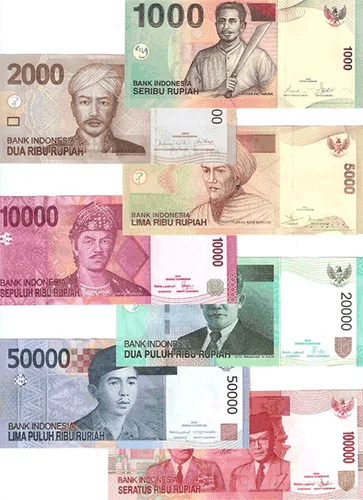
Card acceptance
You will be able to use your existing ATM card in most places where merchants display the same logo as the one on your card. Mastercard and Visa have wide acceptance in Bali.
Cheap ATM withdrawals in Indonesia
- Westpac. Westpac Group cardholders (Westpac, St.George, BankSA and Bank of Melbourne) can avoid the international ATM withdrawal fee by using CIMB ATMs throughout Indonesia. The local ATM operator fee may still apply. You can read more about Westpac's International ATM Alliance here.
- Commonwealth Bank. CommBank have a presence throughout Indonesia — you can find a concentration of CBA ATMs around Bali, especially Kuta. You can avoid ATM withdrawal fees using CommBank products at these ATMs.
- Citibank. You can make free ATM withdrawals using the Citibank Plus Transaction Account at Citibank ATMs in Indonesia. Citibank have an ATM in Kuta.
Indonesia has proved to be a dangerous destination for Australian travellers. From the dreaded Bali belly to contaminated alcohol, there are many risks lurking just below the surface. This is why travel insurance is so important. Travel insurance can cover:
- Cancellations
- Repatriation
- Lost Deposits
- Additional accommodation
- Personal liability
- Emergency dental and medical
Made a search before? Retrieve your search results
- Single Trip
- Annual Multi-Trip
Enter a valid email address Sign up to receive deals on travel and more
Type or select country destination(s)
Popular Destinations
We compare products from

You might also like:
Indonesia is a favourite for holidaymakers from Australia. Bali is an especially popular spot for Aussies, it is virtually impossible to walk down a beach in Bali without hearing that distinctive Aussie twang. Do your research and save on paying unnecessary fees to your bank.
- Read about travel money for Singapore
- Find out how to take money to Fiji
- Compare all your travel money options here
Jacob Joseph
Jacob Joseph was a writer and video journalist for Finder.
More guides on Finder
With inflation still high and the annual indexation looming, should you make some extra repayments to your debt?
Are runes and ordinals about to be the next big thing in crypto?
Save $1,297 by investing some of your savings in an exchange-traded fund.
Find all the weekly tips from our Dollar Saver newsletter and see how you could save.
Drive a banger that needs some TLC?
More Australians are resorting to theft as they struggle with the rising cost of living, according to new research by Finder.
No one wants to spend years and years paying off what ends up being mostly interest. Here are several tips on how to pay off your home loan faster.
SPONSORED: We take a look at how term deposits can help you save more cash and build wealth.
Australian pet owners would fork out an eye-watering amount before considering putting their pet down, according to new research by Finder.
The fourth Bitcoin halving is here - what to expect next from Bitcoin.
Ask a Question
Click here to cancel reply.
You are about to post a question on finder.com.au:
- Do not enter personal information (eg. surname, phone number, bank details) as your question will be made public
- finder.com.au is a financial comparison and information service, not a bank or product provider
- We cannot provide you with personal advice or recommendations
- Your answer might already be waiting – check previous questions below to see if yours has already been asked
4 Responses
Hi I am about to head to Bali and I can’t decided on what to do about money. I am getting all different advice. I have CommBank MasterCard debit and ANZ visa debt… do I just use them to withdraw cash in Bali or use a prepaid multi-currency cash passport
Thanks for your comment.
The ‘best’ option will always depend on your unique financial situation, your travel budget and spending habits.
If you use a Commonwealth Bank Debit MasterCard, you will be charged overseas currency conversion fees and foreign ATM withdrawal fees. These fees vary depending on the ATM you use, so I have emailed you a copy of the product disclosure statement for further information. Also, the ANZ Visa Debit card unlimited ATM withdrawal offer does not apply to overseas withdrawals.
If you are looking to access your own funds overseas, a prepaid travel money card can be a valuable way to load funds on your card, transfer them to a foreign currency and access your funds overseas without the temptation of a line of credit. Unfortunately, not many Australian travel money cards support Indonesian Rupiah, so you might want to look out for a card that does not charge currency conversion fees. This way you can load your card with Australian Dollars and you won’t incur a fee when they’re transferred to Indonesian Rupiah while you’re travelling.
For example, the Commonwealth Bank Travel Money Card is one of few travel money cards that doesn’t charge currency conversion fees on either supported or unsupported currencies.
Please ensure to read through the relevant product disclosure statement and terms and conditions of the card to ensure that you got everything covered before you travel.
I hope this has helped.
I have a multi currency travel card with Aus dollars on it only. Can the currency be converted into Indonesian currency when I use the card? Or do I have to do something in Australia 1st.
Thank you for your comment.
The Multi-currency Cash Passport does not currently support the Indonesian rupiah.
Although you can make payments using the Australian Dollars loaded on your card, you will incur a currency conversion fee of 5.95% plus the MasterCard® rate each time you complete a transaction in Indonesian rupiah.
I hope this has helped answer your question.
Thanks, Sally
How likely would you be to recommend finder to a friend or colleague?
Our goal is to create the best possible product, and your thoughts, ideas and suggestions play a major role in helping us identify opportunities to improve.
Important information about this website
Advertiser disclosure.
finder.com.au is one of Australia's leading comparison websites. We are committed to our readers and stands by our editorial principles
We try to take an open and transparent approach and provide a broad-based comparison service. However, you should be aware that while we are an independently owned service, our comparison service does not include all providers or all products available in the market.
Some product issuers may provide products or offer services through multiple brands, associated companies or different labeling arrangements. This can make it difficult for consumers to compare alternatives or identify the companies behind the products. However, we aim to provide information to enable consumers to understand these issues.
How we make money
We make money by featuring products on our site. Compensation received from the providers featured on our site can influence which products we write about as well as where and how products appear on our page, but the order or placement of these products does not influence our assessment or opinions of them, nor is it an endorsement or recommendation for them.
Products marked as 'Top Pick', 'Promoted' or 'Advertisement' are prominently displayed either as a result of a commercial advertising arrangement or to highlight a particular product, provider or feature. Finder may receive remuneration from the Provider if you click on the related link, purchase or enquire about the product. Finder's decision to show a 'promoted' product is neither a recommendation that the product is appropriate for you nor an indication that the product is the best in its category. We encourage you to use the tools and information we provide to compare your options.
Where our site links to particular products or displays 'Go to site' buttons, we may receive a commission, referral fee or payment when you click on those buttons or apply for a product. You can learn more about how we make money .
Sorting and Ranking Products
When products are grouped in a table or list, the order in which they are initially sorted may be influenced by a range of factors including price, fees and discounts; commercial partnerships; product features; and brand popularity. We provide tools so you can sort and filter these lists to highlight features that matter to you.
Terms of Service and Privacy Policy
Please read our website terms of use and privacy policy for more information about our services and our approach to privacy.
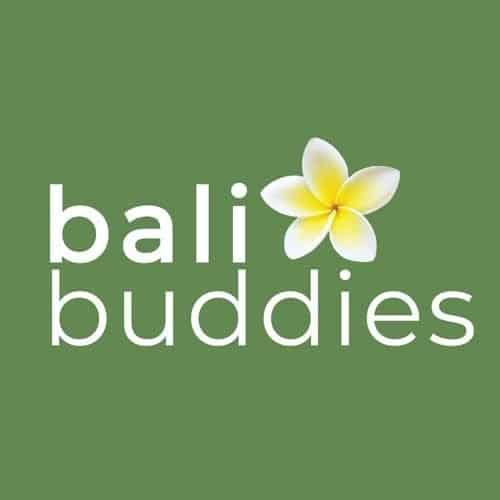
Money Tips you should know
Commission rates, exchange rates, currency conversion and transaction fees can all add up to a lot of your travel budget. It pays to be organised with your money while travelling. There are some important things to know about using and accessing your money in Bali, and about the Bali currency. We have compiled all of the information, and best tips on how to both keep your money safe in Bali, and to get the best value out of your money while visiting Bali.
What Currency is used in Bali?
The Indonesian Rupiah is the currency of Indonesia.
The currency code for Rupiahs is IDR, and the currency symbol is Rp.
Indonesian Rupiah
In Indonesia, you pay for everything primarily with 7 different denominations of banknotes.
The Indonesian rupiah is in increments of 1000, so you will often come across amounts in 10,000 denominations in Bali, which can be confusing sometimes.It is also good to know that the coins, because of their low value they are often not used for rounding amounts or returning change.
Notes of IDR:
– Rp 1,000 (approx 10 cents AUD)
– Rp 2,000 (approx 20 cents AUD)
– Rp 5,000 (approx 50 cents AUD)
– Rp 10,000 (approx $1 AUD)
– Rp 20,000 (approx $2 AUD)
– Rp 50,000 (approx $5 AUD)
– Rp 100,000 (approx $10 AUD)
Bali Insider tips:
*If on a menu for example you see that a burger is listed as “80”, check the fine print at the bottom of the menu. It will usually say, prices are listed in thousands of Rupiah, which means you times the number listed by 1000. The burger would be Rp 80,000 (approx $8 AUD).
*Taxes are not included on menus and are added in the final bill. It is common for taxes to be up to 21%, so keep this in mind when ordering and when splitting bills.
Change your cash money in Bali or Australia?
You will always get a better exchange rate if you wait to change your money once you land in Bali (or any country you are travelling to for that matter). If you are nervous about arriving with no currency you can always exchange a little amount of money before you leave for Bali (in Australia we recommend doing this at Australia Post as they have no fees). The worst exchange rates you will find at the airports, try not to change any currency at the airports as their exchange rates are always significantly lower than genuine money exchangers outside the airport.
When in Bali it is very important to only ever change your money at safe, well-known locations. Never be tempted by street money exchangers advertising a very high exchange rate. These peddlers are like magicians – they will literally make your money disappear before your eyes!
BMC banks. Click here for LOCATIONS
Central Kuta Money Exchange Click here for LOCATIONS
Where to change money in Bali?
When you arrive at the airport after a long flight, it is tempting to exchange money as soon as you leave the airport. It seems to be the fastest and most convenient way, but it’s also very expensive. Money exchange offices outside of the Airport offer a much better exchange rate, which means you get more RP for your money.
Some banks offer currency exchange, but this is not as common as you might think, especially with the increasing trend of using cards abroad. Major banks such as ANZ and Westpac, for example, have stopped buying and selling cash abroad. Instead, they advise their customers to choose their prepaid travel money card (such as WISE or Revolut) or recommend the use of credit or debit cards for payments abroad.
Money Exchanger
It is common for local money changers to display the daily exchange rates on white signs on the side of the street. They usually promote their business with slogans such as “Authorized Money Changer” or “No Commission”.
Some of our favourite places to exchange money are below:
Central Kuta Money Exchange – Click here for LOCATIONS
Are ATMs in Bali safe?
Card skimming is happening more and more all over South East Asia and there have been 1000s of reports of this happening in Bali also. If you are going to use an ATM machine in Bali be sure it is one in a very public area and preferably one that has a security guard or is in a bank, resort or shopping mall. Avoid using ATMs at Minimarts or Circle K’s or random locations on the street.
We also wrote a blog about common Scams in Bali (including ATM scams) – Click here to read it.
When using your bank card in Bali, also check with your bank before you leave your country about fees associated with withdrawing money internationally. The maximum amount you can withdraw at most Bali ATMs is 3,000,000 Rp (approx $300 AUD). This is why we recommend using a WISE or a Revolut card in Bali, rather than your traditional bank ATM card.
Using Bank Cards, Travel Cards or Credit Cards
Paying by card in Bali has become common practice in most restaurants and shopping malls, in fact even some of the more savvy market stores even accept cards these days. Taxis, small local restaurants (warungs), beach bars, and a lot of market stalls still only accept cash, so you are definitely going to always still have at least a small amount of cash on you in Bali.
Travel Crads in Bali
Pay like a local with amazing exchange rates, zero or super low fees and no fee ATM withdrawals overseas – does that sound amazing to you? This is why we recommend getting either a WISE or a Revolut Card (or be like us and have both!) before travelling to Bali.
A travel card, or bank card offering currency buying and selling offers many advantages that you don’t have with a normal credit or debit card.
Both WISE and Revolut cards are easy to set up prior to your trip. You can order a physical card to be delivered to your home address, and you can easily transfer your home currency into IDR with a click of your finger on your app. These two cards have the most favourable exchange rates, and lowest fees when it comes to using your card internationally. We love the security of these cards, and the fact that you can see every transaction on your app, and control all of your security settings on your app too. We literally would not travel anywhere without these cards these days, they make managing your money abroad a breeze.
Set up your WISE account here
How much to pay for things in Bali
The prices in Bali depend very much on the location and the season. It also depends on your personal preferences when it comes to food, accommodation and activities.
Transport & Short Term Scooter Hire in Bali
The quickest & cheapest way to get from a to b in Bali, the best way to get around is by scooter, but you need to ensure you are properly licensed and insured to do this in the case of an accident.
There are different types of scooters, but most of them have 125cc and are able to transport 2 people. However, if you prefer a faster bike, you can rent anything from a 170cc scooter to a superbike. We recommend you take a look at Bikeago, they have a great service and a large selection of bikes.
For holiday makers we recommend only renting scooters from trusted and authorised rental companies. Our personal favourite company is Bikago . They have fair pricing and exceptional service.
Click here to check out their range of bikes & to get a quote
Bali Insider tip:
*If you are staying in Bali long term, it makes sense to rent a scooter for a longer time period as the prices are significantly lower per day.
If travelling in a car or van is more your style, the most cost efficient way to get around in Bali is via the Grab app (in fact you can order rides in both cars and on the back of a scooter on the app).
We recommend linking your WISE or Revolut card to the app, so that payment is automatically debited from your card, this is far easier than having to pay in cash and dealing with trying to get change from the drivers. Cash payment is an option on the app though if you prefer. For day trips exploring the island, the most cost efficient way is to book a car via Klook . You can either choose to make your own itinerary for the day, or book one of their pre planned itineraries.
You can find a laundry service on almost every corner in Bali. The usual price is per kilogram and costs around 10,000 Rp ($1 AUD) to wash, dry and iron your laundry. They usually keep your laundry overnight, but you can find some express laundromats.
When shopping in the supermarkets, you can often buy a shopping bag for a little money. They are not only large, but also sustainably produced, which makes them the perfect bag for storing your dirty laundry.
*If you have delicate items we suggest you wash your laundry yourself in one of the many self-service laundromats. You can find them easily across the island and they are very cheap.
Internet for your Smartphone
In these days of travel we always recommend having access to the internet on your phone. It’s handy for directions and using apps such as Grab to arrange your transport. There are several options when it comes to having access to the roaming data.
You can buy a tourist sim card for your phone at a very reasonable rate (a sim card with 20 Gb Internet costs around 200,000 rupiah – $20 AUD). We love the convenience of an e-sim though, that way you don’t need to worry about removing your physical SIM card, and you can still receive texts and calls on your main SIM card. We recommend using AIRALO as a travel eSIM with very reasonable rates!
Common money traps to avoid in Bali
- You have not checked the fees and conditions of your credit card – Good planning before your trip can save you a lot of money, stress and surprises on your credit/debit cards.
- Too much cash – and yes there is such a thing. In Bali you don’t need a lot of cash, you can get far without carrying a lot of cash around with you.
- Not having any cash – it makes sense to always have a small amount of cash in your wallet.
- You have used the ATM too often – If you go to an ATM to withdraw money, you should withdraw as large an amount as possible, this will avoid you paying too many fees for each transaction.
- Paying in foreign Currency – If you have the option when paying by card, you should always choose to pay in IDR. Foreign currency exchange rates can result in dynamic currency fluctuations, leading to higher conversion fees and lower exchange rates.
We hope these money tips help you make using your money in Bali a breeze and give you the best “Bang for your Buck!”.
Bali Buddies Tips
- Looking for the best flight deals to Bali? Compare prices on Skyscanner
- Need accommodation in one of Bali’s top hotels or resorts? Visit Klook.com
- If you prefer alternative accommodation, check out Bali’s stunning treehouses .
- Want to explore Bali on a bike? Rent a bike via Bikago.
- Accidents do happen. In case they happen to you, make sure you have a travel insurance. We recommend Cover-More Travel Insurance .
- Arrive without any hassle, book the Airport VIP Fast Track service and your airport transfer in advance.
- Download the Grab app . It's your reliable app for transportation, food delivery, and more.
- Book your tours and activities prior to departure with Klook
- Need to transfer money without the huge fees then check out Wise .
- Always connected to WiFi? Buy a Skyroam hotspot.
- Ensure your devices are secure with a VPN .
More Travel Tips

Despite speech and cultural differences, English remains the top language choice in Bali, followed by Indonesian/Balinese. In this spirit, we have prepared for you a word list that you can start learning for a daily conversation in Balinese
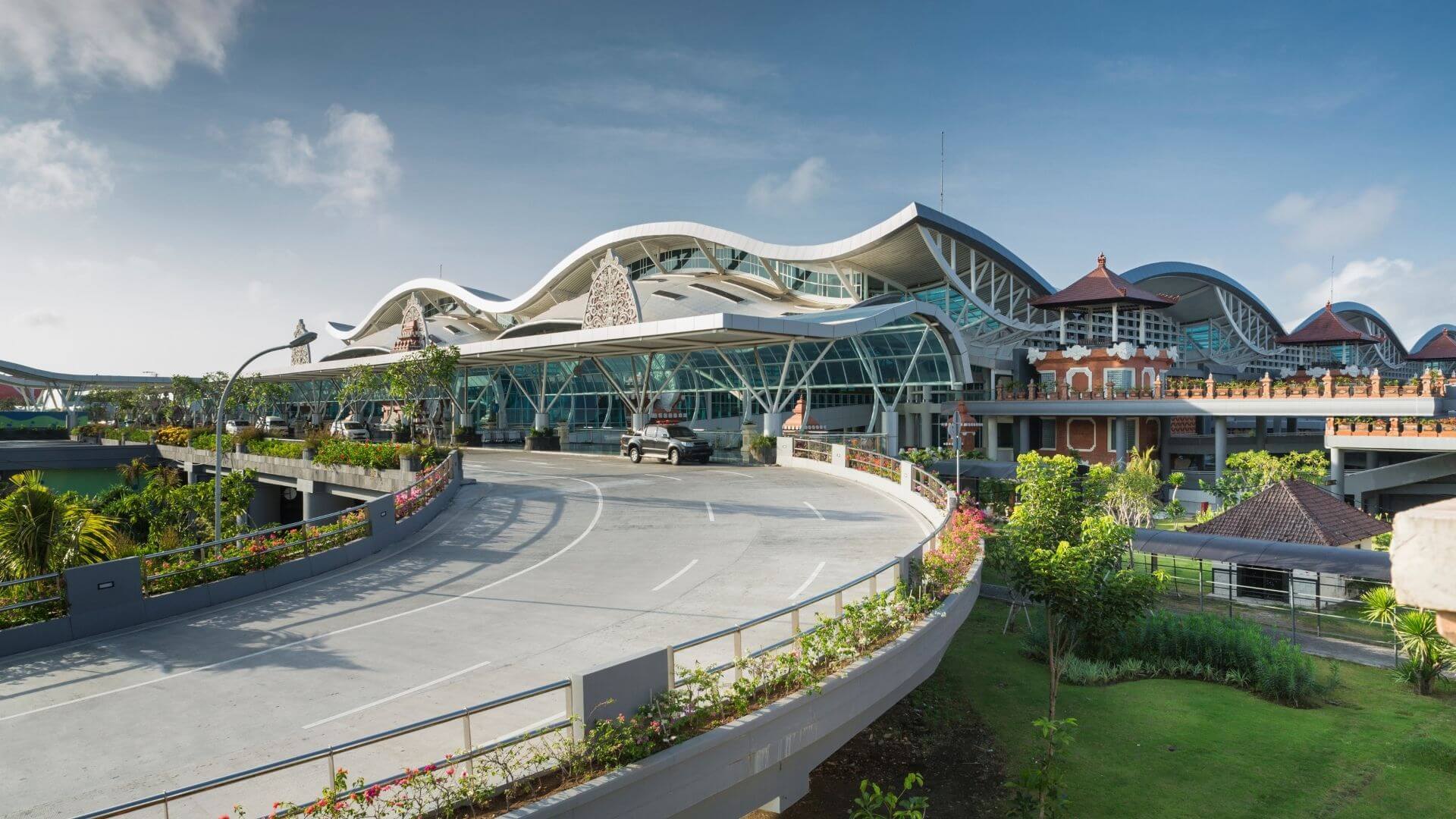
Arriving in Bali
Before you get to Bali, there are a few things you might like to know in advance, for example having a passport with a minimum period of validity of six months,arranging transport with GRAB or directly with the VIP Airport Butler Service that provides a hassle-free way to travel.

Things to Do in Bali with Kids
Looking for the perfect destination for your upcoming family vacation? Look no further, Bali it is! From beautiful beaches, to the lush and green rice terraces to cultural attractions for kids, Bali has it all!
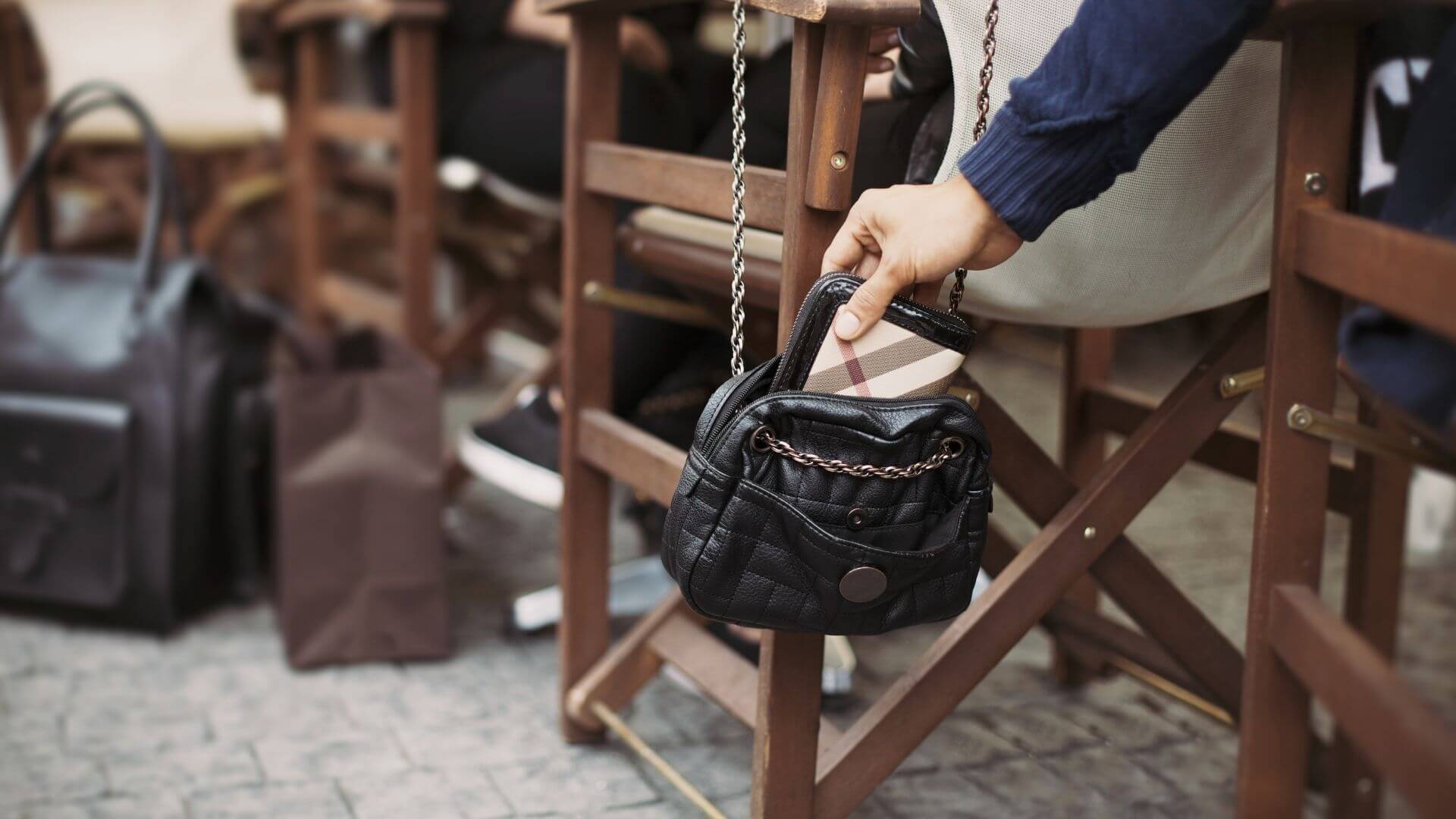
Things to Avoid
Tourists are usually easy pickings, which is why you should keep an eye out at all times! Only transact with reliable money changers, be aware of potential card skimming and pick-pocketing, and learn to recognize banknotes.
Privacy Overview
- Destinations
- Travel Guides

Money in Bali: a traveller's guide to bargaining, tipping and ATMs
)
Marya Sutimi
- Money in Bali
Currency: Indonesian rupiah
Currency code: IDR
While Bali is considered one of the most affordable destinations in Southeast Asia, Bali is the city with the third highest living cost in Indonesia after Jakarta and Surabaya. The average price on the island also varies, depending on which area you choose to stay.
Places like Denpasar, Badung, and Gianyar are considered the most expensive areas, so you can expect to pay higher for accommodation, food, and other items in these districts. Meanwhile, while areas like Karangasem, Tabanan, and Buleleng in Bali aren't very popular with tourists, they are known as the areas with the cheapest living costs on the island.
As a popular tourist destination, most attractions in Bali offer a flat rate for entrance tickets for both domestic and international visitors. Depending on the site, the entrance ticket for some popular destinations in Bali typically starts from IDR 50,000 per person.
In this section, we will dive deep into money matters in Bali, from the best way to pay in Bali to the average price for regular items around the island.
- How to pay in Bali
While debit and credit cards are widely accepted in big establishments like malls or restaurants, it is advisable to carry cash, as shops usually have a minimum amount of transactions to accept card payments in Indonesia.
Alternatively, you can also sign up for a digital wallet in Indonesia through apps like Ovo or GoPay (via Gojek). Most establishments in Indonesia currently accept digital payment using QRIS, which is accessible through these apps.
QRIS stands for the Quick Response Code Indonesian Standard, a payment method using a QR code from the Bank of Indonesia to cater to faster and safer digital payment.
To use this system during your trip, you can top up your balance manually via Grab driver for Ovo, or Gojek for GoPay. If you use Wise, you can also top up your balance by transferring the money directly from your Wise account.
Using ATMs in Bali
ATMs in Indonesia have many features, as people can use ATMs for anything from withdrawing money to paying electricity bills or flight tickets.
You can use ATMs in Indonesia 24/7. Unfortunately, ATM scams like phishing or skimming are not uncommon in Bali, so be vigilant before choosing a machine to withdraw your money from the ATM on the island.
If you withdraw money from other currencies while using a travel card like Wise or Revolut, it is recommended to use BCA or CIMB Niaga ATM. Not only are both banks reputable to be safer than other Indonesian banks, but their foreign exchange rates are also among the best.
Another thing you should be considered is that you may face issues with ATMs running out of money later in the day, especially when you use ATMs at minimarkets. The best ATM to use for withdrawing money would be one that's located at the bank office, if not the ATM centre at a shopping centre.
ATMs usually dispense either 50,000 or 100,000 IDR banknotes; each machine is usually labelled accordingly near the screen. Some ATMs also provide both, and you can usually choose which banknote you want to receive when withdrawing money in Bali.
Scams in Bali
A common scam in Bali is a foreign exchange scam, which usually happens at smaller money exchange offices on the island. Typically, they will have an excuse that they only have smaller banknotes, that you'll get too overwhelmed to calculate them only to find that you receive less money than you should.
If you have to exchange money at one of these offices, you can insist on receiving only banknotes of 100,000 IDR to avoid being a victim of this scam. While skimming and phishing scams through ATMs in Bali are not unheard of, you can also minimise them by setting a maximum withdrawal on your card.
With the influx of tourists around the island, you may also experience scams in the other form, including the following:
Overpriced taxi rides. Conventional taxis with the brand labels on the car must use taximeters before taking any passengers, so make sure the driver turns on this taximeter before agreeing to any taxi services.
Petrol price higher than the standard. Unfortunately, this is quite common even at some official petrol stations. Make sure to check the machine's monitor and start it from "0" before filling your vehicle's tank.
Getting ripped off at the local warungs or restaurants. When the price is not written on the menu, ask for the price before making an order.
Getting approached by strangers offering various services. Whether they provide a massage on the beach or offer you to take a photograph at some touristic place, be aware that they usually come with a catch.
Overpriced items at the local markets. Make sure to bargain the price before purchasing the local products at the shop, especially if it's in a popular tourist area. Typically, you can haggle up to 30% off the offered price. However, the price is non-negotiable if the shop puts a price tag on items they sell. So if you happen to stop by a shop like this, avoid haggling at all costs!
Typical prices in Bali
Here are the typical prices for some common items you may want to purchase on the island:
Hostel accommodation: starting from IDR 100,000 per night
Hotel accommodation: starting from IDR 400,000 per night
Public bus: starting from IDR 3,500 per ride
Airport transfer: starting from IDR 150,000
Balinese kebaya/traditional dresses: starting from IDR 100,000 per piece
Barong shirt: starting from IDR 30,000 per piece
Rattan bag: starting from IDR 100,000 per piece
Balinese spa kit: starting from IDR 100,000 per set
Beer: starting from IDR 30,000 per can
Planning a trip to Bali? Read our Bali travel guides
- Introduction
- Common scams
- Typical prices
Share this article
)
Author - Marya Sutimi
Born and raised in Bandung, Indonesia, Marya is a travel blogger and freelance copywriter. She loves travelling as much as she enjoys staying in. When she’s not travelling, you can find her chilling at home or working on a project remotely.
Last Updated 6 July 2023

Bali Holiday Secrets
Is it better to Take Cash or Credit Cards to Bali?
updated July 1, 2022, 5:34 pm 82.4k Views 13 Comments
One of the most common questions I get is about taking cash or credit cards to Bali on holiday. Many people are concerned that using a card at an ATM is dangerous because of the possibility of it being skimmed or swallowed, quickly ruining an otherwise great holiday. Bringing cash can also have its pitfalls unless you know how to navigate the wide range of options for changing money in Bali. Use this guide to manage your money during your holiday.
Is it better to take cash or credit cards to Bali?
Short answer, both. You can use credit cards in Bali at most hotels, restaurants and tour operators. However, getting around and experiencing Bali will mean you need local currency (Rupiah) as most smaller local businesses and markets don’t have EFT-POS machines.
Definitely bring cash with you. It’s best to bring large-denomination banknotes for exchanging into Indonesian Rupiah at one of the many money changers found all over Bali, but mainly in the tourist destinations of Kuta, Legian, Seminyak, Canggu, Ubud, Sanur and Nusa Dua.
Most major currencies are readily exchanged at money changers, including but not limited to AUD, CAD, EUR, GBP, HKD, MYR, NZD, SFR, SGD, THB, USD and YEN.
What currency is used in Bali?
The Indonesian Rupiah is the only currency accepted at all Balinese businesses. The larger hotels and tour operators may accept foreign currency but at an expensive premium .
I have written a comprehensive guide to Bali Currency including detailed descriptions of the banknotes, current exchange rates and a guide to what some basics cost when on holiday in Bali.
IDR100.000 is equivalent to around AUD$10. So remember, carrying around $300 in cash means around IDR3.000.000 Rupiah, which is quite a thick wad of banknotes.
You will need local rupiah for a wide range of occasions where credit cards aren’t accepted, like paying for parking with a 2.000 rupiah note (which is around AUD$0.20) or buying street food like the famous babi guling (Balinese roasted pork) for Rp30.000 (around AUD$3).
You are also best off taking cash to the markets for buying some of those genuine fake t-shirts, bags, hats and shoes along with the obligatory souvenirs for the family and friends back home.
And taxis only accept cash. Don’t forget to read my guide on how to catch a taxi in Bali and how much to pay.
Can I exchange cash at hotels?
Yes, you can at most hotels, but the premium for changing money at a hotel is usually very steep . Changing currency is a profitable revenue stream for hotels and bargaining for a better exchange rate is usually out of the question.
They often charge a transaction fee or commission on top of the uncompetitive exchange rate, so changing cash, particularly small amounts, is prohibitively expensive.
I highly recommend exchanging your cash for local currency at a reputable money changer.
Are money-changers safe to use in Bali?
Yes. Using money changers in Bali will get you the best exchange rate and value for money than any other method. The problem is that there are still many unscrupulous money changers looking to take advantage of unsuspecting tourists .
There are several reputable and trustworthy money changers in Bali and I highly recommend you read my article on how to exchange cash using local money changers .
There are many people who, unfortunately, do get ripped off because they use dodgy money changers in the many side streets and alleyways of Bali, particularly in Kuta, Legian and Seminyak.
If you follow my guide the risk of being ripped off is virtually nil .
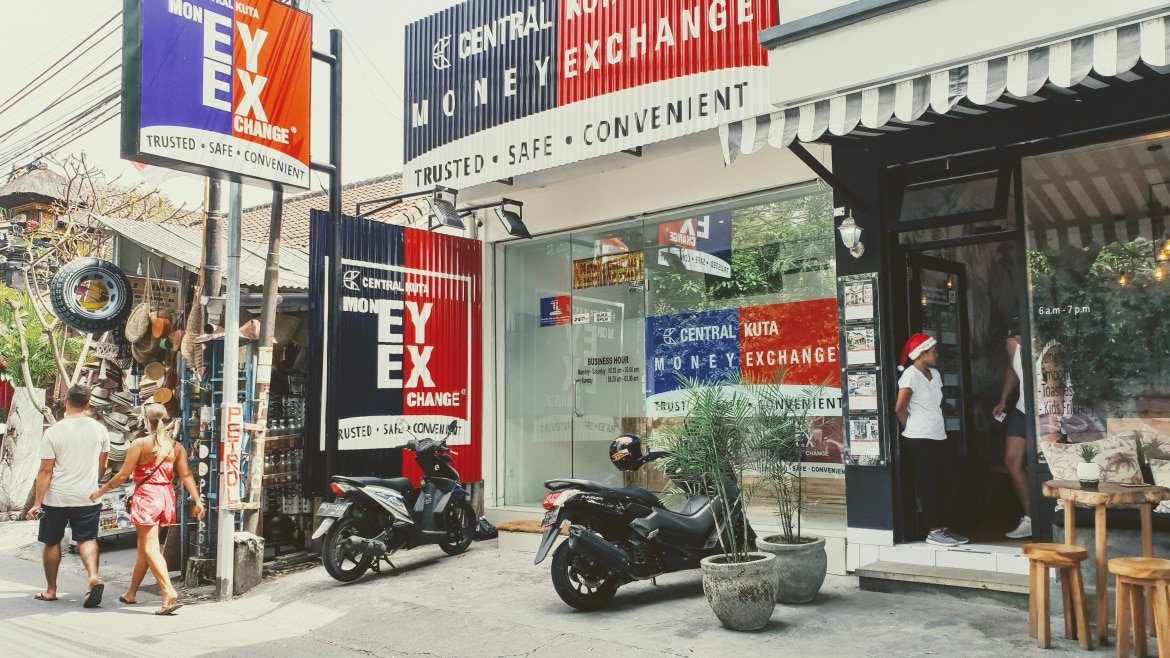
Where is the best exchange rate in Bali?
Without doubt, the most efficient and recommended method for exchanging your money for local Indonesian Rupiah is using the money changers. You can find money changers pretty much everywhere in Bali, although I recommend only using those who are on the trusted list of Bali Money Changers . In that article, I also cover which money changers to use and how to avoid the bad ones.
Exchanging cash for Indonesian Rupiah at a money changer will get you a better exchange rate than using a bank, withdrawing from an ATM, changing at a hotel or using the exchange booths at your departure airport.
Are ATMs safe to use in Bali?
Generally, yes. There are ATMs all over Bali, although there is a continuing problem with skimming machines being used by criminals to capture your card details and either on-sell them or use the cards for purchases.
Knowing how to spot an unsafe ATM is easy enough, and I have written an extensive guide for withdrawing cash at ATMs in Bali . Using this guide your chances having your credit card skimmed while using an ATM is virtually nil .
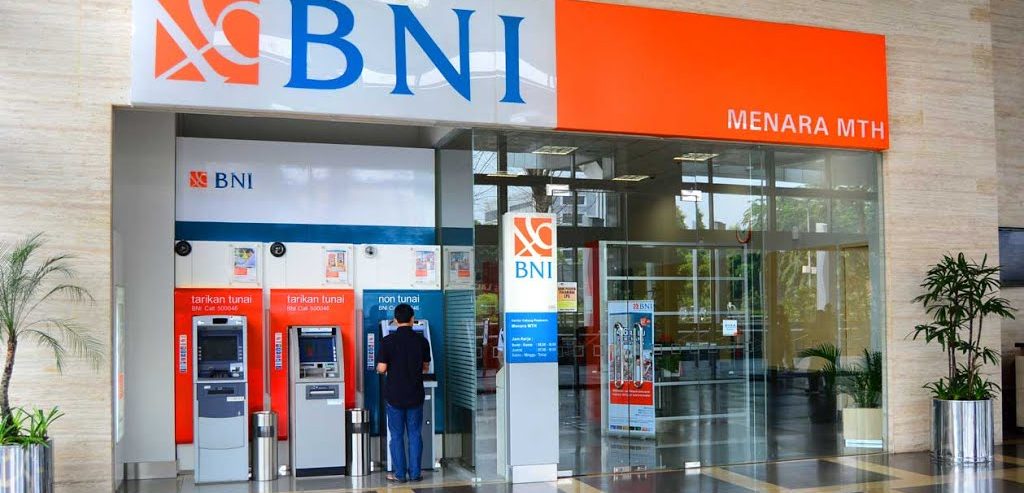
What credit cards are accepted in Bali?
For businesses that do accept credit cards for transactions, Visa and Mastercard are universally accepted .
Expect to pay a 3% surcharge for using a credit card at businesses in Bali, as the practice of passing on the transaction fee charged by the banks for processing credit card transactions is very common .
There is a growing trend to not charge a credit card fee for purchases, but these are still the exception and not the rule. The very popular Bintang Supermarket in Seminyak recently ceased charging a 3% fee for using a card.
The practice of adding a credit card transaction fee is not regulated in Indonesia (and therefore Bali), so it is unpredictable which businesses will charge extra for using a credit card .
Can Debit Cards be used in Bali?
As a rule of thumb, Visa and Mastercard Debit cards are processed exactly the same as Credit Cards. However plain debit cards not linked to one of Visa or Mastercard are not accepted.
It’s the same for using ATMs — accounts linked to a Visa or Mastercard can access savings and checking accounts if these are enabled by your home bank.
It’s an easy thing to verify. If you can access your savings and checking accounts in your home country using your Visa or Mastercard then you can do the same in Bali at ATMs.
The exception is that most restaurants and hotels only accept a credit or debit transaction linked to your credit card.
Are US Dollars accepted in Bali?
US dollars are not generally accepted at Balinese businesses . Some larger hotels and tour operators may accept US Dollars as payment but the exchange rate will be terrible, so I don’t recommend using them to exchange your foreign currency if it can be helped.
You are much better off visiting a money changer and exchanging your US dollars for Indonesian Rupiah at a far better rate than you will get from a hotel or tour operator.
Is American Express accepted in Bali?
No. American Express is not generally accepted in Bali . Some international hotel chains will accept American Express but outside those few places, Amex is not accepted in Bali . Stick to Visa and Mastercard, both of which are generally accepted everywhere that takes credit cards.
Are traveller’s cheques accepted in Bali?
Yes. Money changers, in general, will exchange travellers’ cheques for local currency , but the rate is not as good as exchanging cash for Indonesian Rupiah.
Outside the international hotels, no businesses will accept travellers’ cheques as payment . You will need to exchange your traveller’s cheques for Indonesian Rupiah at a money changer. Most shops and businesses don’t accept them as payment.
Great advice!
This really has helped me plan my family's holiday so much Michael. I used to just change traveller's cheques or cash at the hotels I stayed at and I knew it was expensive but I didn't trust using money changers or ATMS. Now I know! I'm sending this to all my friends. Thank you again, it really is a wonderful resource.
What’s the best travel card to use in Bali?
Without a doubt, the Transferwise Debit Card is the best card for travelling anywhere, not just in Bali. I have been using Transferwise to transfer money between different currencies for several years, and they have the best exchange rates of any financial institution, and definitely far better than your bank or even your bank-issued travel card.
You can move money from your home bank account into your Transferwise account and move it between 59 currencies at the most competitive exchange rates I’ve ever seen for foreign currency transactions.
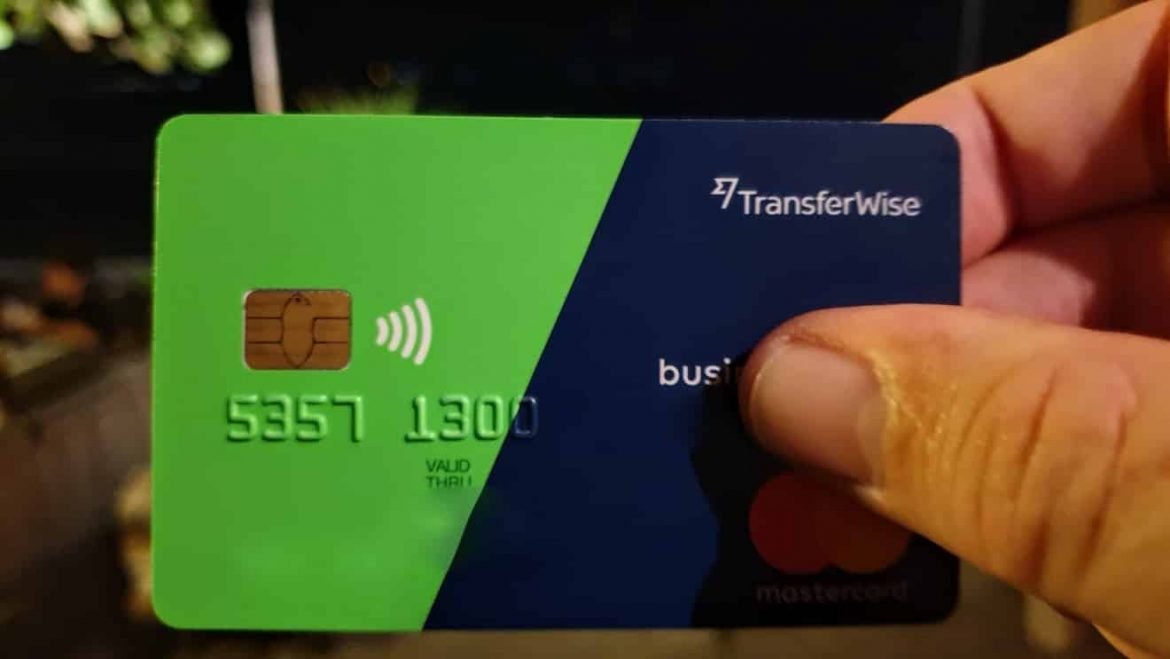
You can then spend in those currencies when on holiday. For example, while in Bali, you can move money into Indonesian Rupiah within your Transferwise account, and spend in Rupiah while in Bali with no fees or transaction charges, exactly the same as if you were using a local account .
You can read more about the Transferwise Debit Card here .
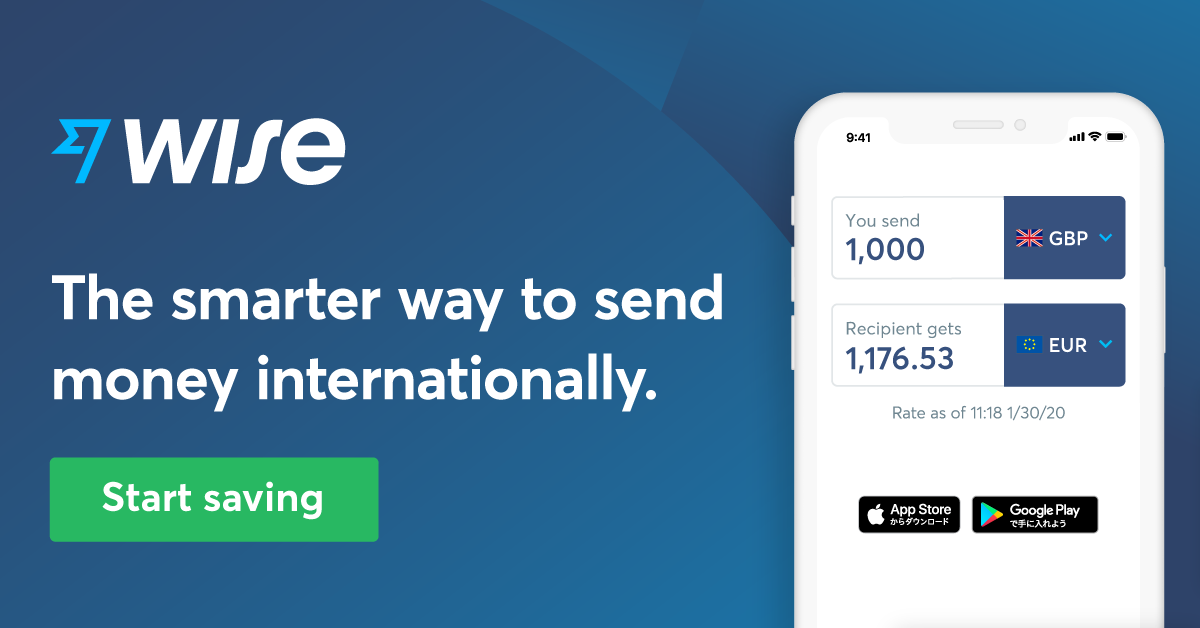
© 2024 Bali Holiday Secrets. Hosted with Cloudways .
- Investing & super
- Institutional
- CommBank Yello
- NetBank log on
- CommBiz log on
- CommSec log on
Help & support
Popular searches
Travel insurance
Foreign exchange calculator
Discharge/ Refinance authority form
Activate a CommBank card
Cardless cash
Interest rates & fees
Travel / Travel Money Card
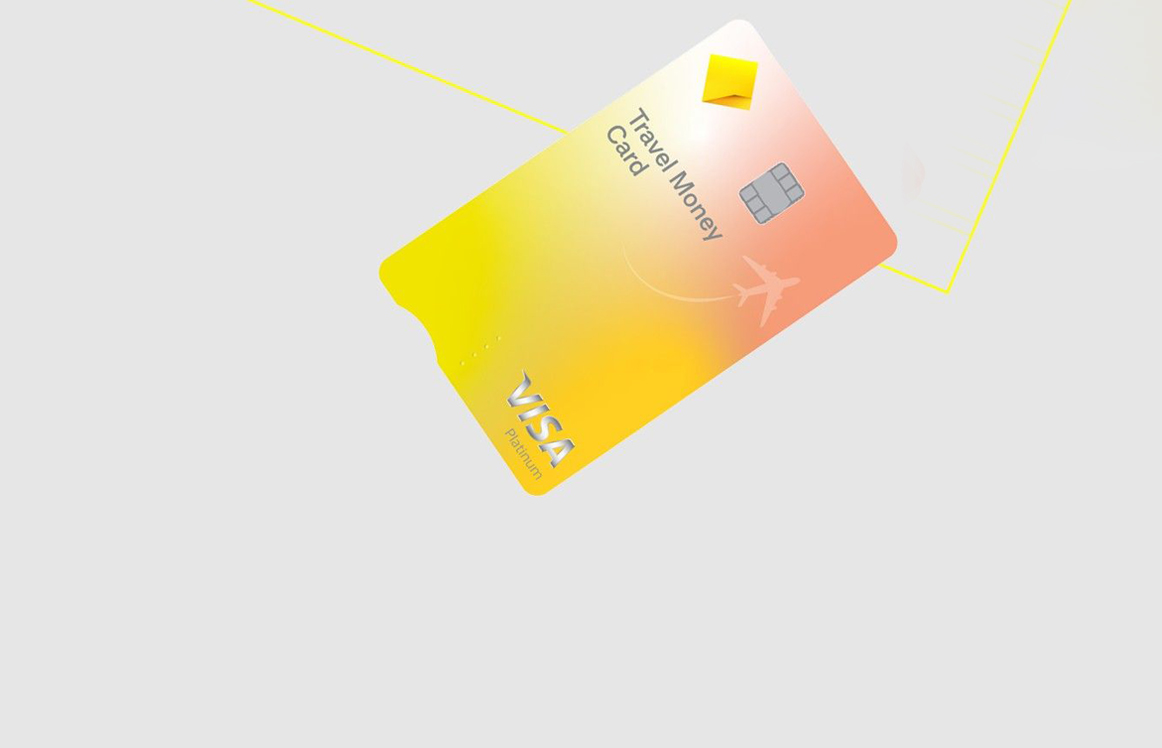
Travel Money Card
Lock in exchange rates and load up to 13 currencies on one account to easily access your money while you’re travelling.
Features & benefits
$0 card issue fee.
Order a Travel Money Card for free in branch or online (search 'Travel Money Card' in the CommBank app or log into NetBank ).
Lock in exchange rates
Load up to 13 currencies on one card before your trip, so you know how much you have to spend, no matter how the Australian Dollar moves.

Spend anywhere in the world
Shop online, in-store, or over the phone wherever Visa is accepted, plus get access to Visa ® travel offers .
Easily manage your travel budget
Manage your holiday money and track your spending via the CommBank app or NetBank.

Your purchases, covered
Lost or stolen personal belongings? We may be able to cover the cost to repair or replace them up to 90 days after purchase. 2
Extra card security
Lost, misplaced or stolen card? Lock it and report it in the CommBank app or NetBank.
- Currency converter
Exchange rates
Load up to 13 currencies on one account
Lock in exchange rates and load up to 13 currencies easily on one account – wherever you are in the world – through NetBank or the CommBank app:
- United States Dollars (USD)
- Euros (EUR)
- Great British pounds (GBP)
- Australian Dollars (AUD)
- Japanese Yen (JPY)
- New Zealand Dollars (NZD)
- Hong Kong Dollars (HKD)
- Canadian Dollars (CAD)
- Singapore Dollars (SGD)
- Thai Baht (THB)
- Vietnamese Dong (VND)
- Chinese Renminbi (CNY)
- Emirati Dirham (AED)
No load or reload fees
You can load up to 13 currencies on your Travel Money Card with no load or reload fees. The exchange rate is the CommBank Retail Foreign Exchange Rate at the time of the conversion.
When you’re ready to pay for something, we will always try to complete the transaction for the country you are in. Make sure you have enough of the correct currency for the country you’re in on your card to avoid additional fees. If you don’t have enough of the local currency, we’ll use the next available currency instead, so long as there’s enough of it loaded on your card.
If you load multiple currencies on your Travel Money Card, you can change the order (the next available currency) anytime online.

Rates & fees
See all fees and charges
Who can apply
To get your Travel Money Card, you’ll need to:
- Be at least 14 years old;
- Be registered to use NetBank, or register online New to CommBank? Sign up to NetBank at your nearest branch ;
- Provide a valid email address; and
- Have an Australian residential address
How to apply
Before your trip.
- Order a Travel Money Card in the CommBank app (search 'Travel Money Card'), NetBank , or at your nearest branch .
- Load at least AUD 50 or the foreign currency equivalent to get started
- Once you’ve got your card, activate and set your PIN online in NetBank, or under Cards in the CommBank app
- Lock-in the exchange rate by loading currency on your card in NetBank or the CommBank app
How it works
During your trip.
- The local currency will be automatically applied when you pay for something, as long as it’s loaded on your card and you have sufficient funds
- Reload in real time , fee-free if your balance gets low
- Stick to daily transaction limits
- The maximum value of purchases per day is unlimited, however no more than your available balance
- The maximum amount you can withdraw from ATMs per day is AUD 2,500 or the foreign currency equivalent. Keep in mind most ATM operators have a limit on how much you can withdraw from an ATM per transaction
- The maximum amount for over-the-counter withdrawals per day is AUD 2,500 or the foreign currency equivalent.
When you’re home
- Got leftover currency? Exchange it for another currency or back into your CommBank account from NetBank or the CommBank app
- Top up your Travel Money Card (it’s valid for 4 years) in preparation for your next trip
- Donate your foreign (and local) currency to any CommBank or Bankwest branch and every cent will go to UNICEF
- How to manage your Travel Money Card
You’ve got your new card – here’s how to get the most out of it.
Find detailed info on getting started, loading and reloading currencies, setting a currency order, checking your balance and tracking your spend. Plus, info on Purchase Security Insurance Cover and access to Visa ® travel offers .
Manage your Travel Money Card
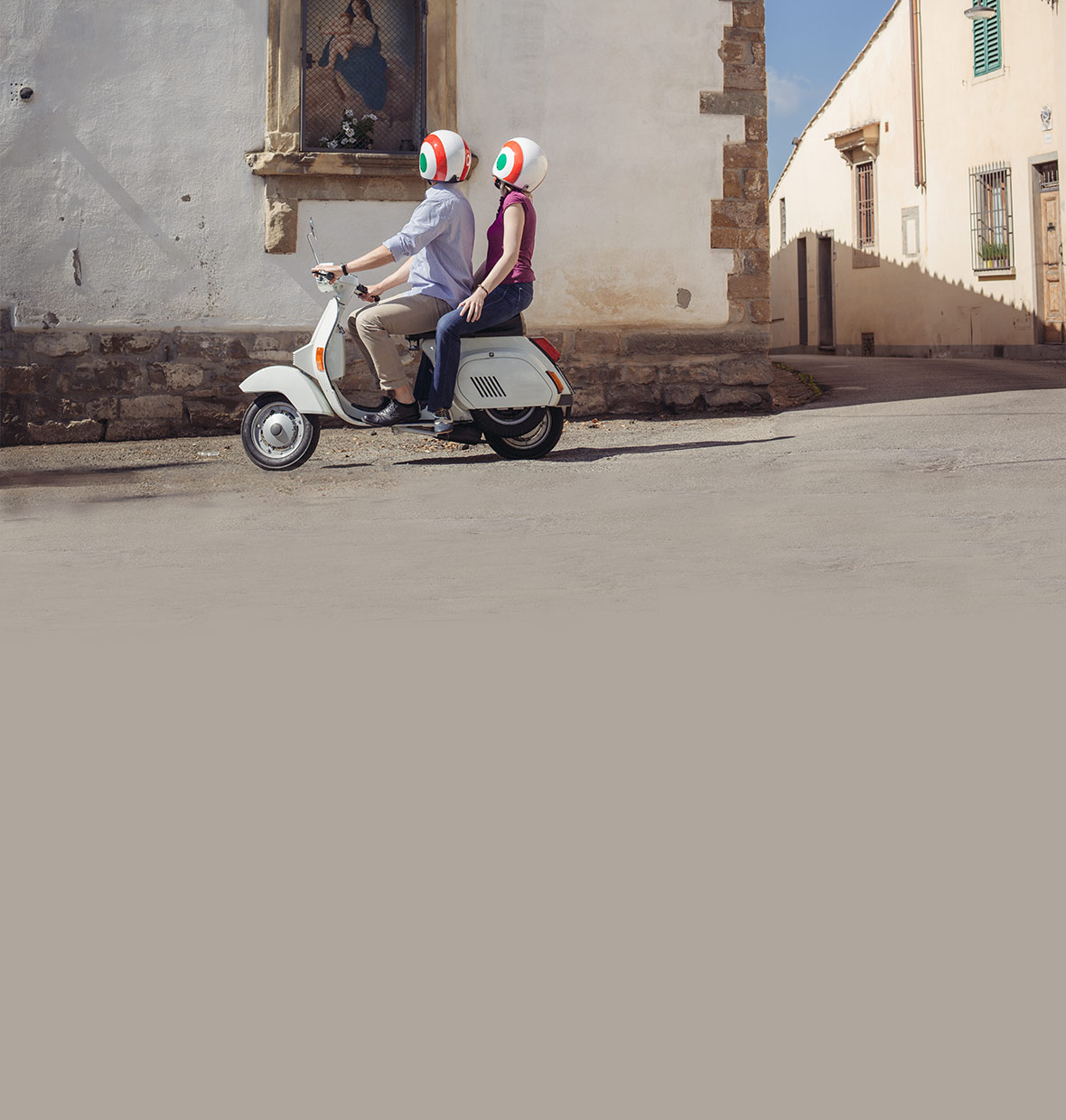
Need foreign cash? Have it ready before you travel
If you’re a CommBank customer, you can buy or sell up to 9 foreign currencies at selected CommBank branches in exchange for Australian Dollars.
You can also order foreign cash in over 30 currencies online – even if you’re not a CommBank customer.
Discover Foreign Cash

Planning an overseas trip?
Discover travel tips to help make the most of your European summer holiday.
See travel tips

Emergency support & tools
What to do if you’ve lost your card or it’s stolen.
If you’ve lost your Travel Money Card, or you think it might’ve been stolen, we can have an emergency replacement card sent to you anywhere in the world.
You may also be eligible for an Emergency Cash Advance, giving you access to cash within 24-48 hours (often on the same day).
Call us in an emergency on:
- 1300 660 700 within Australia
- +61 2 9999 3283 from overseas (reverse charges accepted).
When calling from overseas using your mobile, standard roaming charges may apply. To avoid roaming charges, call the international operator in the country you’re in from a landline and give them our reverse charges number +61 2 9999 3283.
Tools & calculators
- Saving calculator
- Budget planner
- Managing multiple currencies on your Travel Money Card
- Travelling overseas: 10-step money checklist
- Beginners guide to exchange rates
- Online banking while overseas
- Planning an overseas holiday
We can help
Your questions answered
Get in touch
Visit your nearest branch
Things you should know
1 The cash withdrawal fee will not apply to cash withdrawals made in Australia.
2 For more information relating to the complimentary Purchase Security Insurance refer to Travel Money Card Complimentary Insurance Information Booklet (PDF) .
As this advice has been prepared without considering your objectives, financial situation or needs, you should before acting on this advice, consider its appropriateness to your circumstances. The Product Disclosure Statement and Conditions of Use (PDF) issued by Commonwealth Bank of Australia ABN 48 123 123 124 for Travel Money Card should be considered before making any decision about this product. View our Financial Services Guide (PDF) .
To raise a dispute related to your Travel Money Card please complete this form for transactions (PDF) or this form for ATM disputes (PDF) .
Any withdrawal or balance enquiry fee will come from the currency for which you are using your card. If this currency is not loaded on your card, the fee will be taken from the first (or sole) currency loaded on your card. Any SMS balance alert fee will come from the first (or sole) currency loaded on your card.
The target market for this product will be found within the product’s Target Market Determination, available here .
- Argentina
- Australia
- Brasil
- Canada
- Deutschland
- España
- France
- India
- Italia
- Magyarország
- Malaysia
- New Zealand
- Polska
- Portugal
- România
- Singapore
- United Kingdom
- United States
- 繁體中文 (香港)
Currency in Bali: A Full Guide [2023]
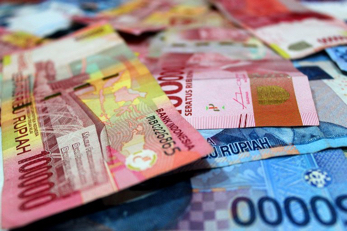
The official currency in Bali (and all of Indonesia) is Indonesian Rupiah (IDR). In this article, we’ve put together everything you need to know about Indonesian Rupiah and share some tips on how to get the best deal on your conversion from AUD to IDR.
Before you head to Bali, learn about:
- Using a Card in Bali
- Can you use Australian Dollars in Bali?
- How to buy Indonesian Rupiah before your trip
- How to buy currency when you get to Bali
- What Indonesian notes and coins look like
What currency is used in Bali?
Bali is part of Indonesia, and so the official currency there is Indonesian Rupiah. Indonesian Rupiah is shortened to the code IDR online and in currency exchange offices, and you’ll often also see it written as Rp on menus and in stores.
Can you use Australian dollars in Bali?
No, you can’t.
While we travel to Bali and Indonesia very frequently, you cannot use Australian dollars in Bali. Just like you can’t use Indonesian Rupiah here! The rest of this article has some information about how you can convert currency for your holiday.

Using a card in Bali
Using a travel money card to spend and make cash withdrawals in Bali can be convenient and safe. You won’t need to carry around all your holiday money in cash, and the fact your travel money card isn’t linked to your normal AUD everyday account can also add an extra layer of security.
Travel money cards are available from banks and specialist digital providers, and often offer the option to hold a broad range of currencies for convenient spending in Bali and beyond. However, fees usually apply to some transactions, including some charges when you switch currencies from AUD to the local currency in your destination. You’ll need to weigh up a few different options to find the travel money card that’s right for you – we’ll cover a couple to consider, next.
Wise travel debit card
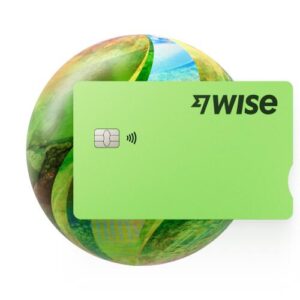
- Currency exchange uses the mid market rate with low fees from 0.43%
- Accepted in 170+ countries , including Indonesia , wherever the card network is supported
- If you don’t have the balance you need, your card will switch to the local currency automatically at the point of payment
- Physical and virtual cards available
- 10 AUD fee to get your card
- Some ATM fees apply once fee free withdrawal allowance is exhausted
- Variable currency conversion fee
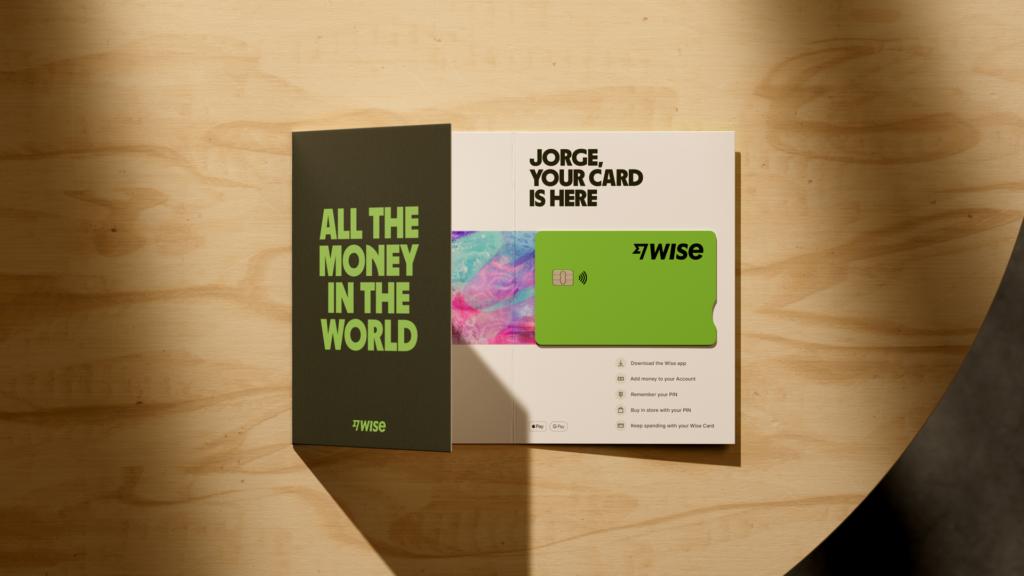
Go to Wise Read the full review
Revolut travel debit card
- Hold and exchange 25+ currencies
- Some free currency exchange every month
- Globally accepted wherever the network is supported
- Pick the account plan to suit your usage and needs
- Monthly fees apply to higher tier accounts
- IDR not supported for holding
- Fair usage and out of hours fees may apply, depending on how you use your account
Go to Revolut Read the full review
Is it cheaper to convert currency in Australia or Bali?
Because exchange rates change so frequently, and every provider offers different rates it’s hard to say the cheapest way and place to exchange currency.
Having said that, because Bali sees so many Australian tourists every year it is one instance where you might find you’re better off if you exchange your currency when you get to Bali. Get familiar with the exchange rates offered locally to you, and online, so you can decide whether it’s worth switching some funds in advance of travel, using a card to pay while you’re away, or converting cash on arrival.
Both in Australia and in Bali, steer clear of exchanging currency at the airport. A captive market means that rates are often worse in the airport than in city centres.
To find the best place to buy IDR, you can read our guide here .
Buying Indonesian Rupiah before your trip
If you want to set your travel budget in advance, you may prefer to buy your IDR before you leave home. Here are a few options you might consider.
Using a travel card
Order a travel card online or in a store for your trip to Bali , depending on the provider you pick, and top up in either AUD or IDR before you travel. Your exact options will depend on the specific card, as holding a balance in IDR isn’t always available. However, a travel card can still be convenient and secure. Just tap to pay in stores, and take out cash as and when you need it, rather than carrying all your travel money with you on departure.
Check out Wise as a travel card you can use to hold and exchange IDR with low fees and the mid-market rate – or try Revolut as a convenient card you can top up in AUD and use in Bali easily.
This is a convenient way to buy currency but you need some time. You can choose where to pick the order up from, and in some instances can get home delivery. When you order with Travelex , you can choose to order cash, a prepaid Travelex Money Card or both!
Collect at a Travelex store or airport
- You can pay by Bpay, card or PayID
- Online rates can be better than in-store rates
- Pick up at a broad selection of locations including airports
Click here to see the full list of cards and how they compare
Money Changers
Going to a money exchange office can be a quick way to get your hands on foreign currency cash. Exchange rates and fees do vary widely, so you’ll need to shop around. Watch out in particular for exchange services which state there’s no commission, as the costs may simply be added into the exchange rate being used instead.
Find some of the best currency exchange options by location, here .
Some banks offer currency exchange, but it’s not as common as you might think, as so many people have moved over to card usage overseas. Major banks like ANZ and Westpac, for example, no longer sell or buy foreign cash. Instead, they refer customers to their prepaid travel money card, or suggest you use your credit or debit card to pay when abroad.
Yes, you can buy currency at the airport. But that doesn’t mean you should. While it’s convenient, it’s also very expensive. If you have run out of time before your trip, you might find you get a better rate and lower overall costs if you make an ATM withdrawal on arrival in Bali instead.
How to exchange currency in Bali
If you decide to buy your currency when you get to Bali, the first thing you’ll need to do is make sure you have Australian dollars in cash. This way you can exchange it when you get there.
Similar to in Australia, it’s best to avoid buying currency at the airport or your hotel, and better to head to a busier area where competition can push prices down.
There are many money exchange booths you will find in the streets of popular areas. Just make sure you’re careful counting what they give you.
What is the currency of Bali?
Let’s walk through the cash notes and coins you’ll find in circulation in Bali so you’re prepared.
Denominations of Rupiah
Whether you change money in advance, on arrival, or simply use your card to pay when you’re in Bali, you’ll soon become familiar with the notes and coins you’re handling.
Indonesian Rupiah notes are very different to our currency in Australia. They are made up of:
Rp2,000, Rp5,000, Rp10,000, Rp20,000, Rp50,000, Rp100,000.
There are quite a few coins in Indonesian currency. The coins in circulation in Indonesia are:
Rp50, Rp100, Rp200, Rp500, Rp1,000.
How much does a trip to Bali cost?
A trip to Bali could mean anything from a homestay in the hills, to enjoy peace, yoga and some gentle hikes, through to a high end beach hotel for the sunsets, cocktails and surf. The good news is that this means there’s something in Bali for every budget. Here’s a brief outline of the typical costs to help you plan.
- Visa cost: Visa on Arrival for trips of 30 days or less, 50 AUD
- Transport in Bali: Local bus journeys are under 0.5 AUD
- Taxi: Around 1 AUD per kilometre – Grab (Asia’s Uber) is also available
- Car hire: from around 65 AUD/day
- Room at a hotel: Very varied based on hotel class
- Dinner at a mid- range restaurant: 2 people can eat a 3 course meal for around 35 AUD or less
Read 8 travel traps to avoid if you’re heading to Bali
Track AUD-IDR exchange rate
Before you travel to Bali it’s worth getting to know the exchange rates you can expect when you’re there. While rates move around all the time, the mid-market exchange rate for your currency pair is always a good place to start. It’s the rate that banks and currency exchange services get when they buy and sell currencies on global exchanges, so a good benchmark.
Get the Currency Shop’s exchange rate tracker so you can keep an eye on mid-market AUD/IDR rates and make your money work for you in Bali.

IMAGES
VIDEO
COMMENTS
Best 5 Travel Money Cards for Bali in 2024: Wise Travel Card for the best exchange rates. Revolut Travel Card for low fees. Travelex as the best all rounder. ING One Low Rate Platinum Credit Card for no international transaction fee. HSBC Everyday Global for best debit card for ATM cash withdrawals.
Wise travel card - best currencies coverage - 40+ supported currencies and mid-market exchange rate. Revolut travel card - best selection of account types - 3 different plans depending on your preferences. Chime travel card - no foreign transaction fee. Monzo travel card - no Monzo ATM fees.
It can be a good idea to take both cash and card to Bali. Although credit, debit and travel money cards generally use networks like Visa and Mastercard that are generally widely accepted in major cities, the Ministry of Tourism says carrying some rupiah is still "highly advisable". Bali.com recommends carrying enough rupiah to pay for small ...
Revolut travel debit card: Hold a balance in GBP or around 25+ other currencies, then spend in IDR with mid-market exchange rates to the plan limit. Pick from 4 different plan types, including some with no monthly fee, and some which come with ongoing costs but which unlock more benefits and no fee transactions.
1. Not taking a prepaid card. Our first point is an important one. Using a prepaid card in Bali is a great way to avoid the fees and costly exchange rates that often come with ordinary debit and credit cards, not to mention the theft risk of carrying around large amounts of cash.. The Wise card is a good choice for a prepaid travel card. You get the market exchange rate, low fees and you'll ...
We've listed what we think are three of the best travel cards you can use while you're in Bali. They can be either prepaid, debit or credit cards designed specially for overseas use. You can use travel cards to make purchases online, in stores and to withdraw money at ATMs. There are 3 popular types: Prepaid Travel Cards; Travel Debit Cards
Most ATMs in Bali allow a maximum withdrawal of 1,250,000 (50,000 bill machines) to 3,000,000 rupiah (100,000 bill machines) per transaction with a total maximum of 6,000,000 rupiah withdrawal a day. Be aware that often machines will hand out the money first before returning your card. Make sure you do not walk away without taking your card!
Why Wise Debit Card is cheaper than banks and credit cards. Using Wise for sending money from Australia to Bali. The Wise Travel Debit Card. Withdraw Local Currency with your Transferwise Debit Card. No leftover foreign currency at the end of the holiday. Save money by spending local currency during airport transits.
3 best travel money cards for Bali: Let's kick off our roundup of the best travel cards for Bali with a head to head comparison on important features. Here's an overview of the providers we've picked to look at, for customers looking for ways to spend conveniently overseas when travelling from Canada:
Bank notes: Rp 2,000, Rp 5,000, Rp 10,000, Rp 20,000, Rp 50,000, Rp 100,000. The currency used on the island of Bali is the Indonesian Rupiah. The name Rupiah, or IDR, is Indian in origin, and said to derive from the classical Indian word for silver (rupyakam). Before the country's independence from Holland, the Rupiah was known as the Dutch ...
Dirty secret #1. One of the reasons travel card sellers sell their cards is because they claim you will get a better exchange rate. I think that is rubbish. You will get the best rate if you change at a reputable money changer when you arrive in Bali. This is particularly true if you come from a country that Bali money changers accept currency ...
While N26 does not have multi-currency functionality, N26 will apply the real exchange rate on all your foreign purchases and will never charge a commission fee — making N26's card a powerful card for EU/EEA residents who travel across the globe. 8.3. Monito Score. Trust & Credibility.
The CommBank Travel Money Card offers up to 13 different international currencies and can be used all over the world. Furthermore, the Commonwealth Bank have a large number of ATMs and branches in ...
Travel rewards with no annual fee. Go to site Terms apply, see rates & fees. 20,000 miles (equal to $200 in travel) after spending $500 in the first 3 months. Earn unlimited 1.25x miles on all purchases. Low intro rates on purchases and balance transfers.
When using your bank card in Bali, also check with your bank before you leave your country about fees associated with withdrawing money internationally. The maximum amount you can withdraw at most Bali ATMs is 3,000,000 Rp (approx $300 AUD). This is why we recommend using a WISE or a Revolut card in Bali, rather than your traditional bank ATM card.
Currency. The currency in Bali is the Indonesian rupiah. You'll see it written as IDR and it's the only currency accepted in shops and restaurants. Some larger hotels may accept US dollars and euros, but will generally charge you extra for the privilege. Notes come in denominations of 1,000, 2,000, 5,000, 10,000, 20,000, 50,000 and 100,000 IDR.
Money in Bali. Currency: Indonesian rupiah. Symbol: Rp. Currency code: IDR. While Bali is considered one of the most affordable destinations in Southeast Asia, Bali is the city with the third highest living cost in Indonesia after Jakarta and Surabaya. The average price on the island also varies, depending on which area you choose to stay.
Short answer, both. You can use credit cards in Bali at most hotels, restaurants and tour operators. However, getting around and experiencing Bali will mean you need local currency (Rupiah) as most smaller local businesses and markets don't have EFT-POS machines. Definitely bring cash with you.
When you open a new Travel Money Card account online via NetBank or in branch. $0. Initial load/reload fee. When you initially load/reload funds onto your Travel Money Card or transfer funds from your Travel Money Card to an eligible CommBank account via NetBank or the CommBank app. The rate applicable is the CommBank Retail Foreign Exchange ...
Travel money cards are available from banks and specialist digital providers, and often offer the option to hold a broad range of currencies for convenient spending in Bali and beyond. However, fees usually apply to some transactions, including some charges when you switch currencies from AUD to the local currency in your destination.